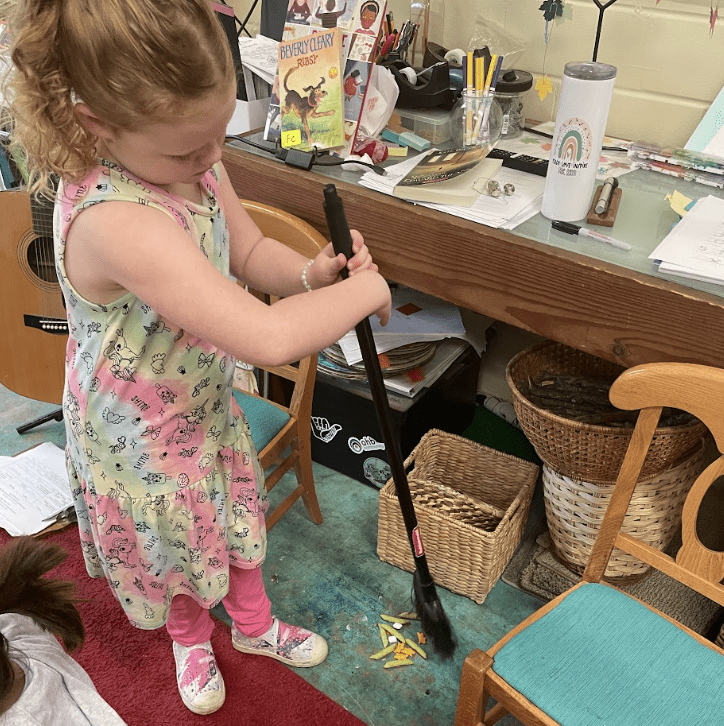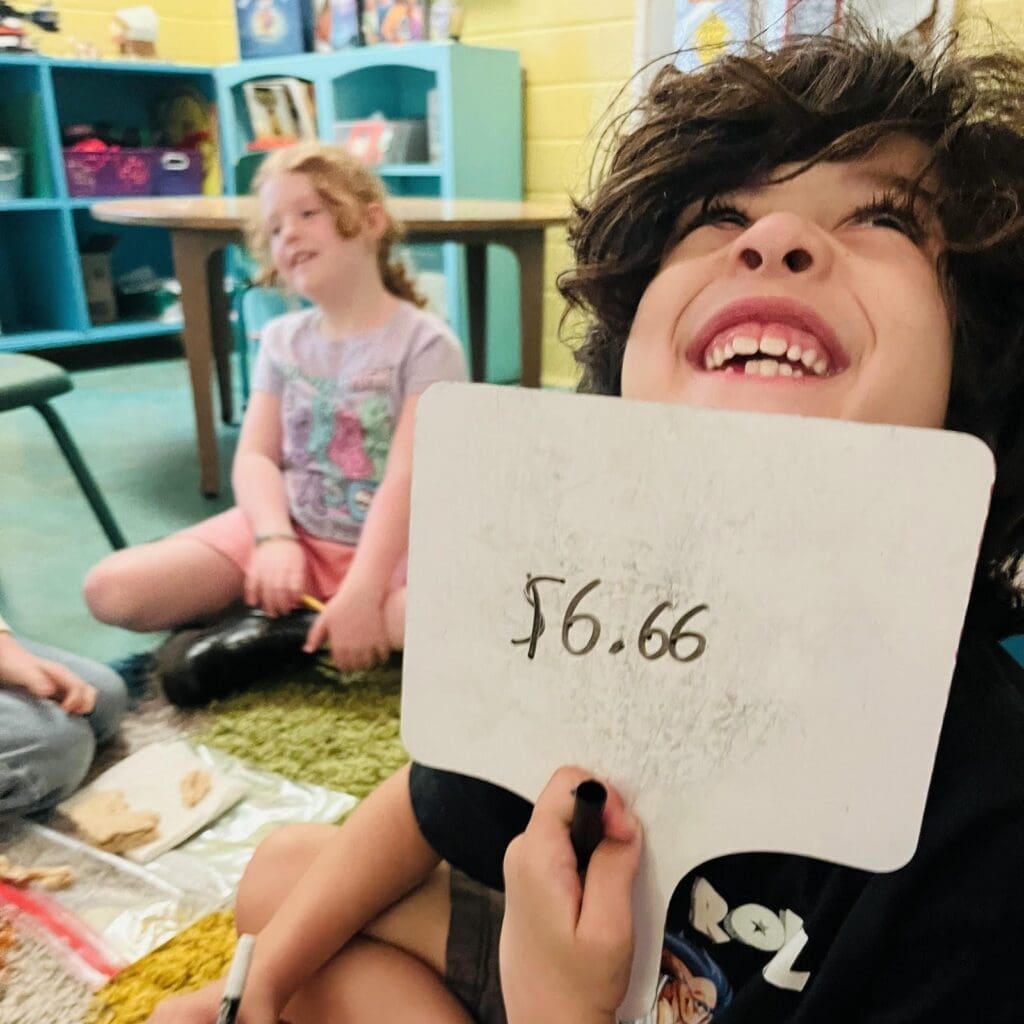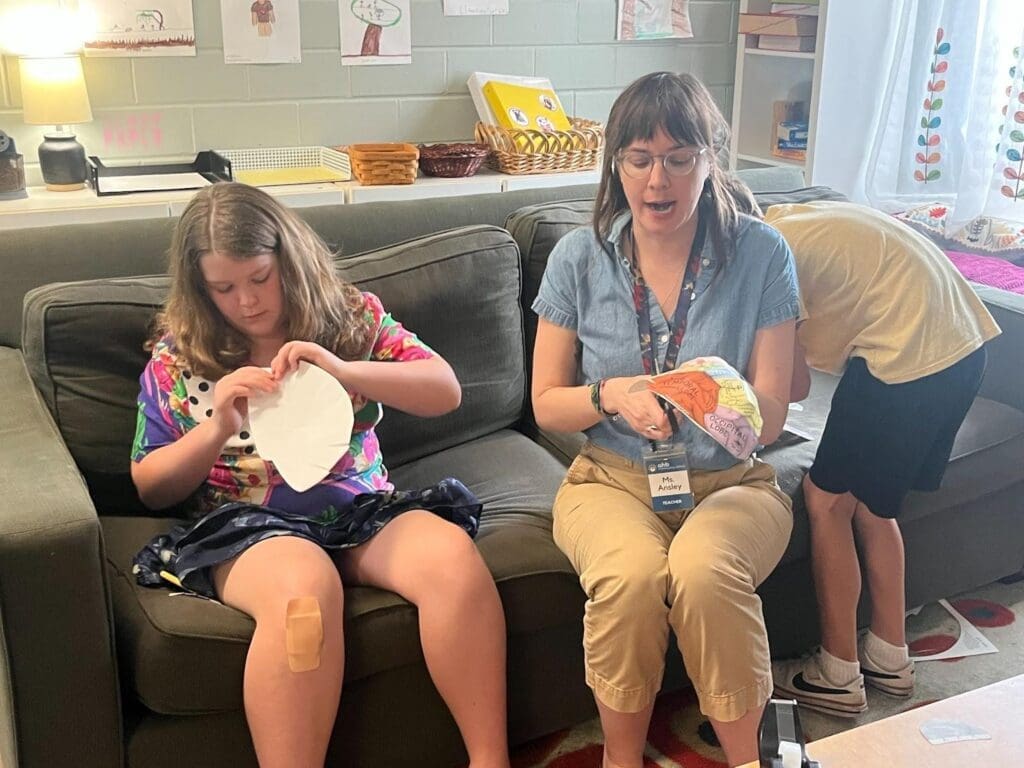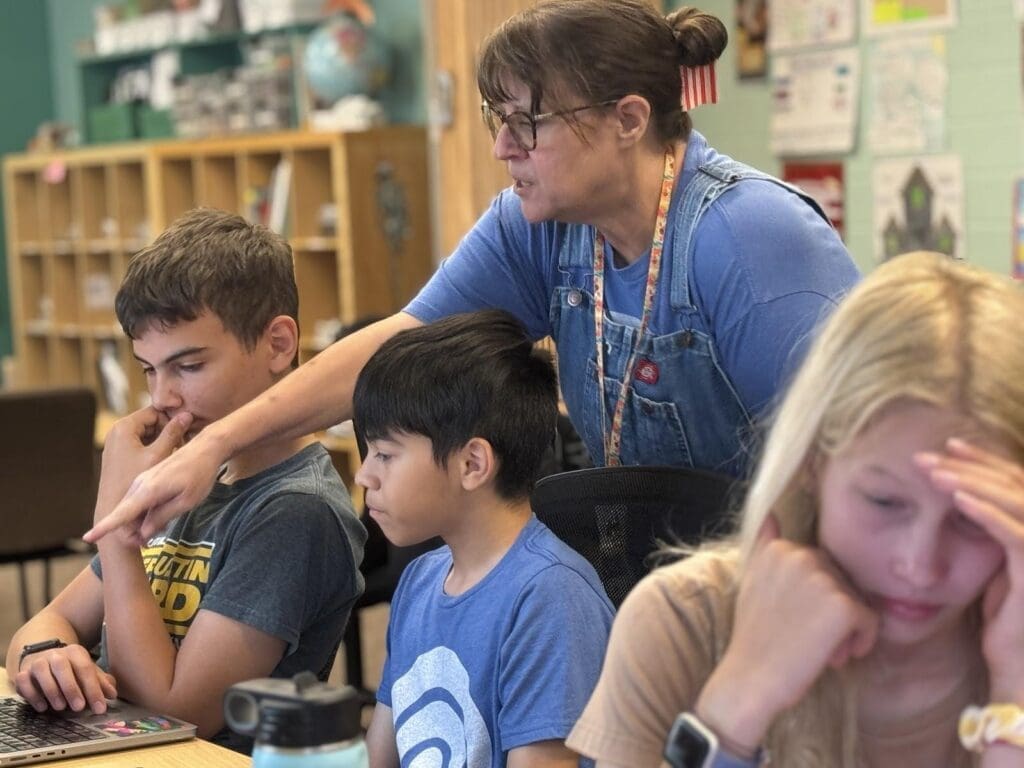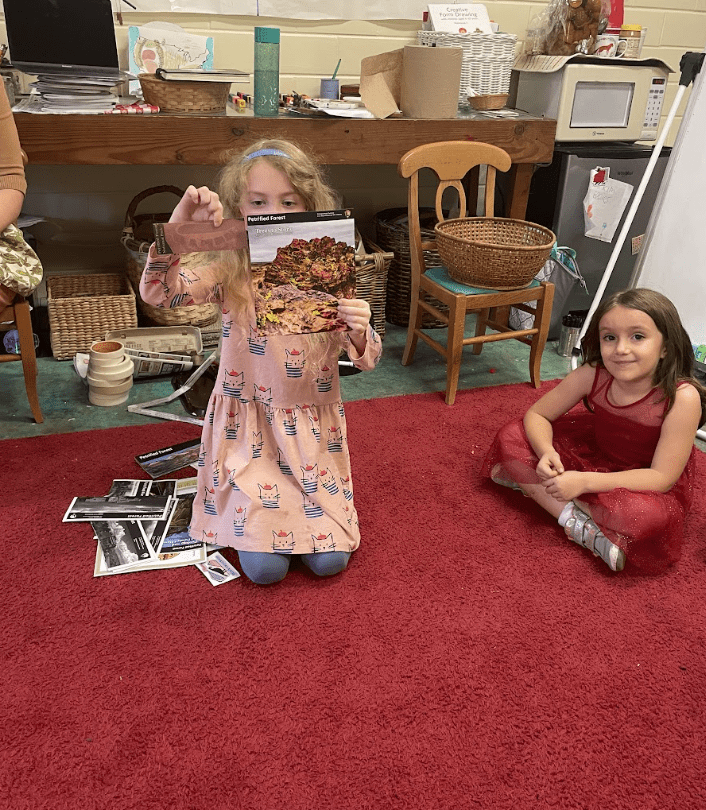
We got our first National Park reply, now we all want to take a field trip to the Petrified Forest in Arizona!
What’s Around Us?!
This week we visited the Southeast Region of our continent. One of the most important feature in this area is the Appalacia Mountain range. We learned that millions of years ago these mountains were as big, if not bigger than the Himalayas. The were formed by 2 tectonic plates ramming together: Africa and North America! Second year Alphas knew right away what happened to the 29.000 foot Appalacia Mountains, and why they are only about 6600 feet high today: because of weathering and erosion! They have been worn down- in fact, the beautiful white beaches in the Gulf of Mexico are made of quartz sand from those very mountains!
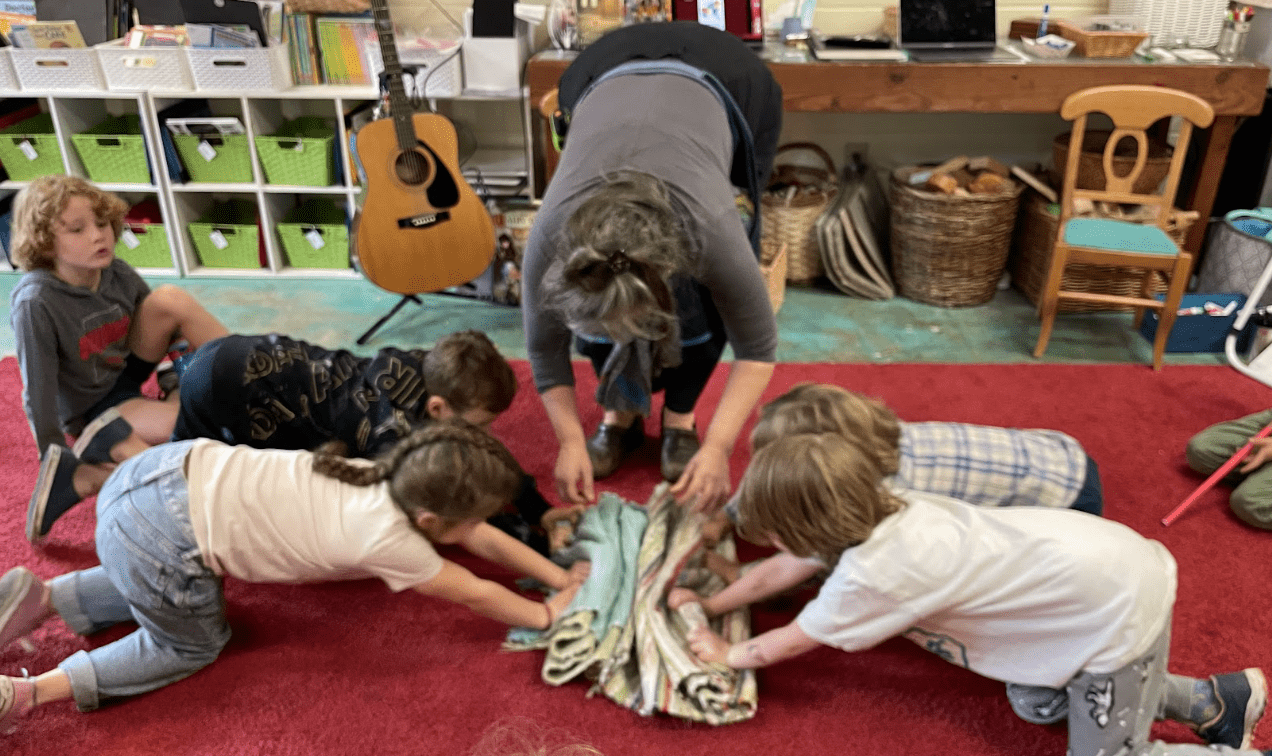
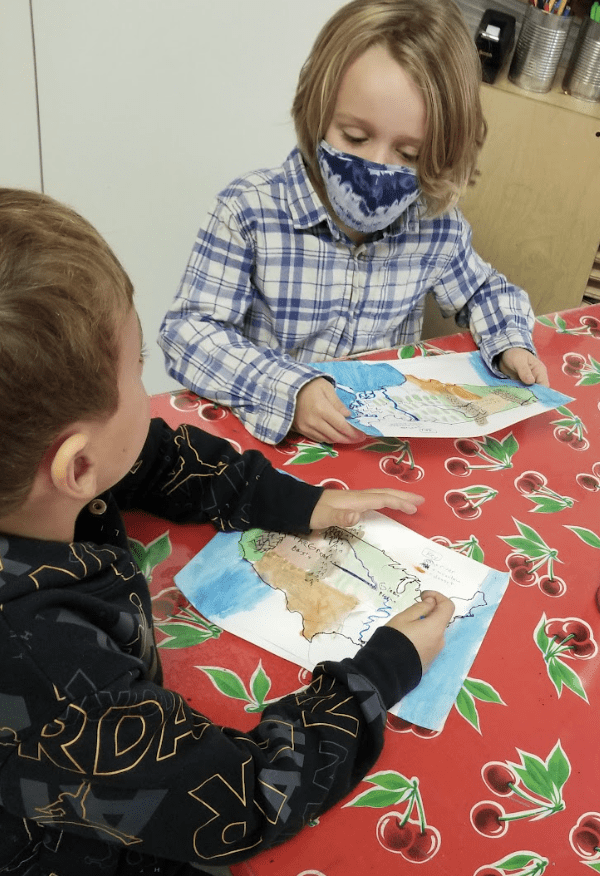

Because this mountain range is situated between the Gulf of Mexico and the Atlantic ocean they get weather on both sides of the mountain. When water falls on them it runs off into rivers and streams running East and West providing clean clear water for plants and animals that are far away from the mountains. The first people that settled in the Southeastern region were nomadic but learned that when they returned to certain areas that some of their favorite plant foods were growing in their garbage heaps. They figured out that seeds could be planted and they developed a way to plant and store food; they became farmers. Some of these ancient communities were huge and they built amazing mounds of earth where chiefs lived and temples stood. You can visit them today.

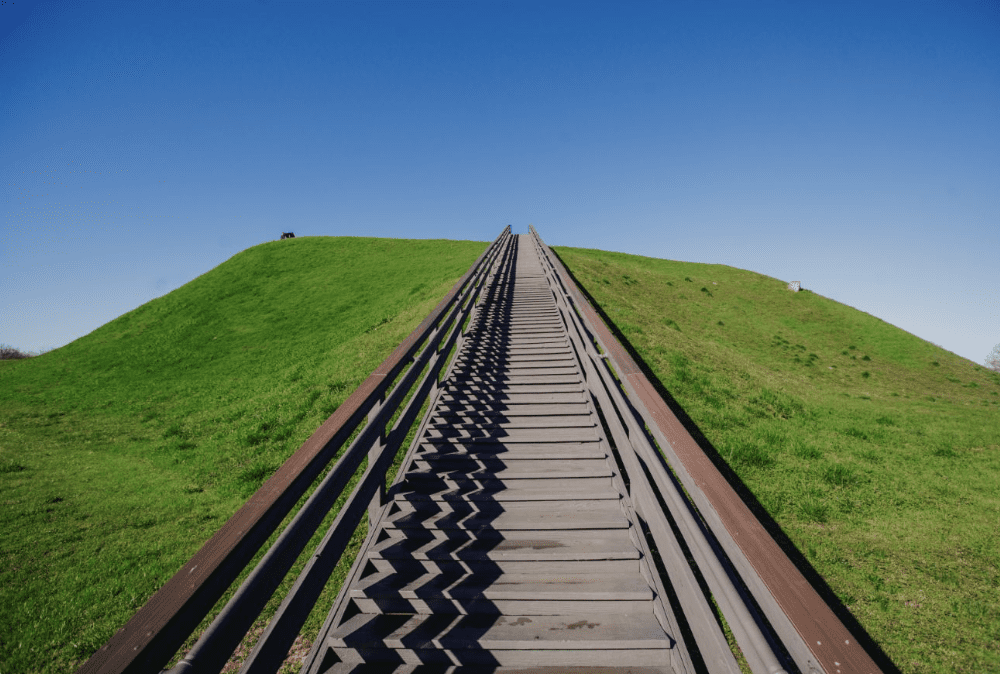
Then… ….and now
Early European explorers encountered these people – and brought germs with them that the Europeans could handle but they were so new to the American Indians that many of them died. There are nations from the Southeast that survived: Seminole, Muskogee, Choctaw, and Cherokee. Water was a revered resource for these people and communities settled along the rivers because they provided them with drinking water, water for crops, it attracted wildlife, and connected them to other communities they could trade with. The Cherokee people created instruments that combined 3 sacred kingdoms plant, animal, and earth. These instruments were rattles that, when played, imitate the sound of water flowing over rocks and stones (here’s a link to the sound of running water). They believed that music was connect their souls to the cosmos. We listened to some Cherokee rattle music(these rattles were made of gourds) and started making our own Turtle Rattles (ours are made out of paper plates)..
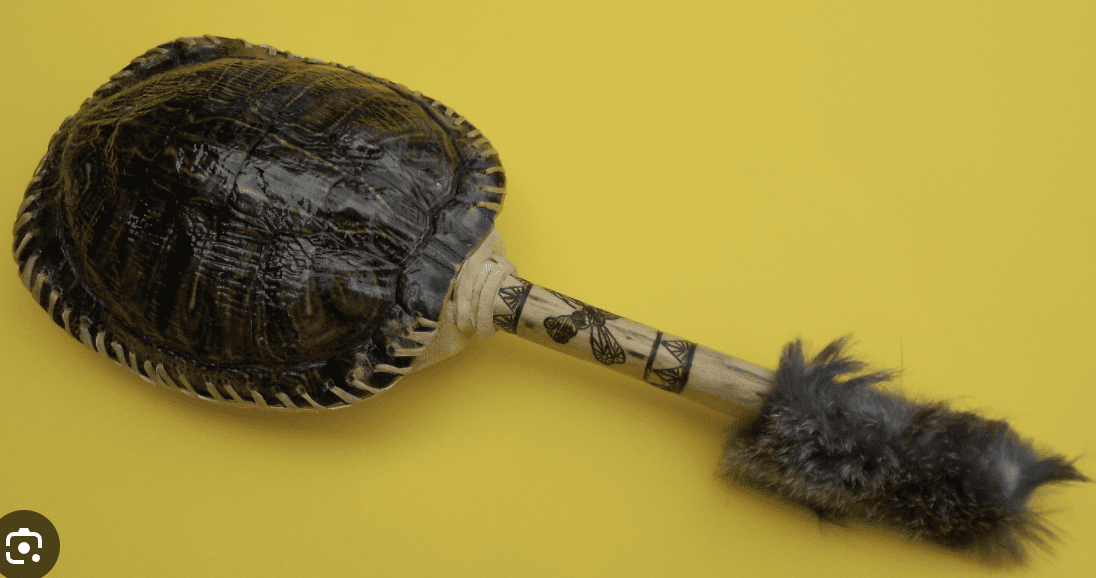
When Europeans began settling in the Southeastern region, they brought new pressures to the Indian Nations. The Cherokee people had good reason to be afraid of these strange new people; one way they learned to cope with their fears was to create ways to laugh at them. They created characters and wore crazy masks and costumes and acted out silly walks and skits to make fun of the strangers who were settling in their territory. These were not sacred rituals, they were entertainment.
The dances were called Booger Dances and their masks were called Booger masks.
Alphas HAD to make some!
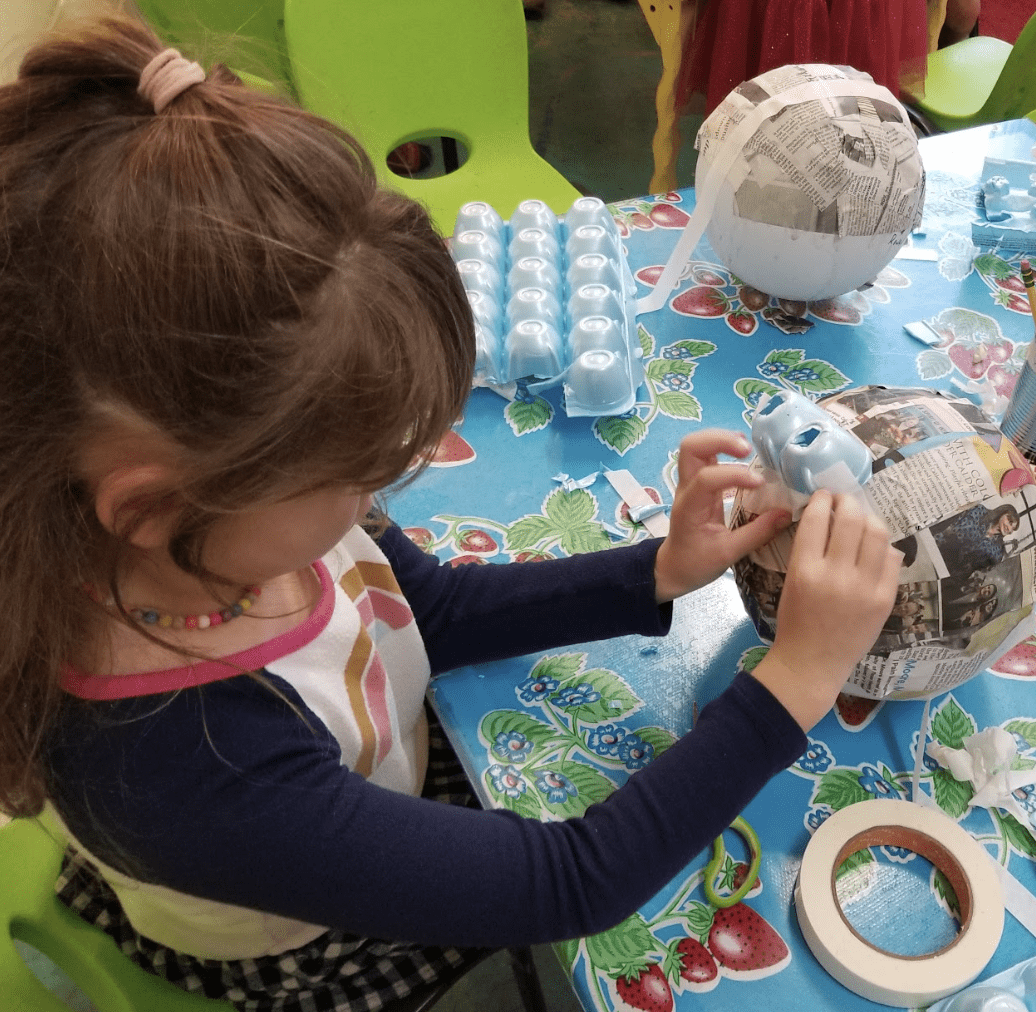
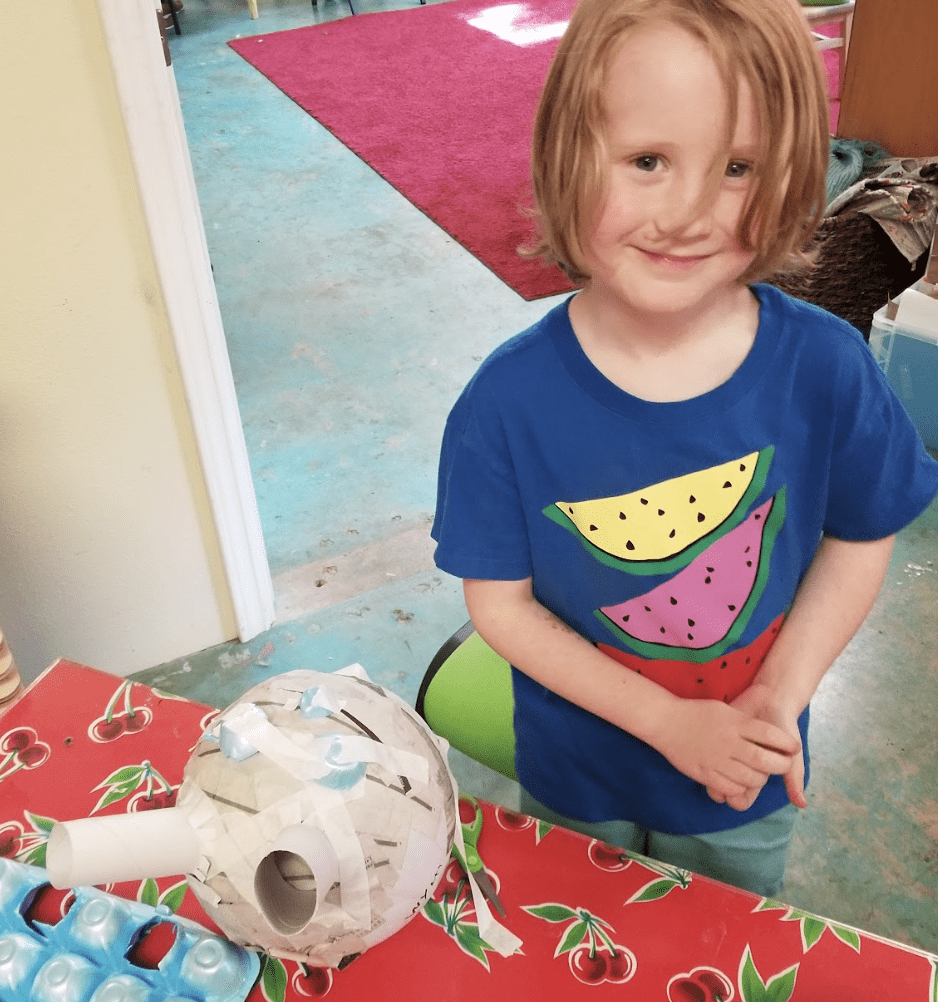
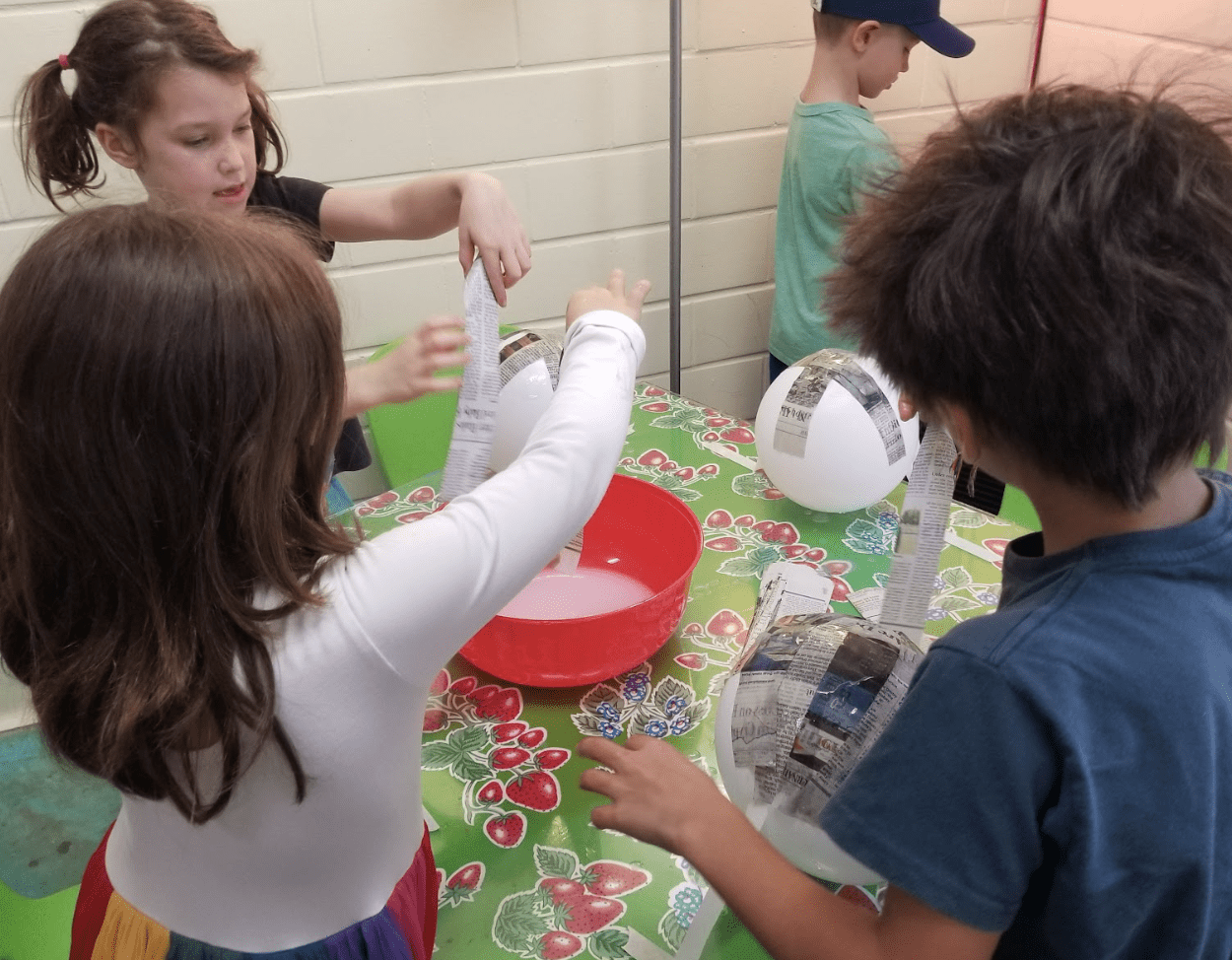
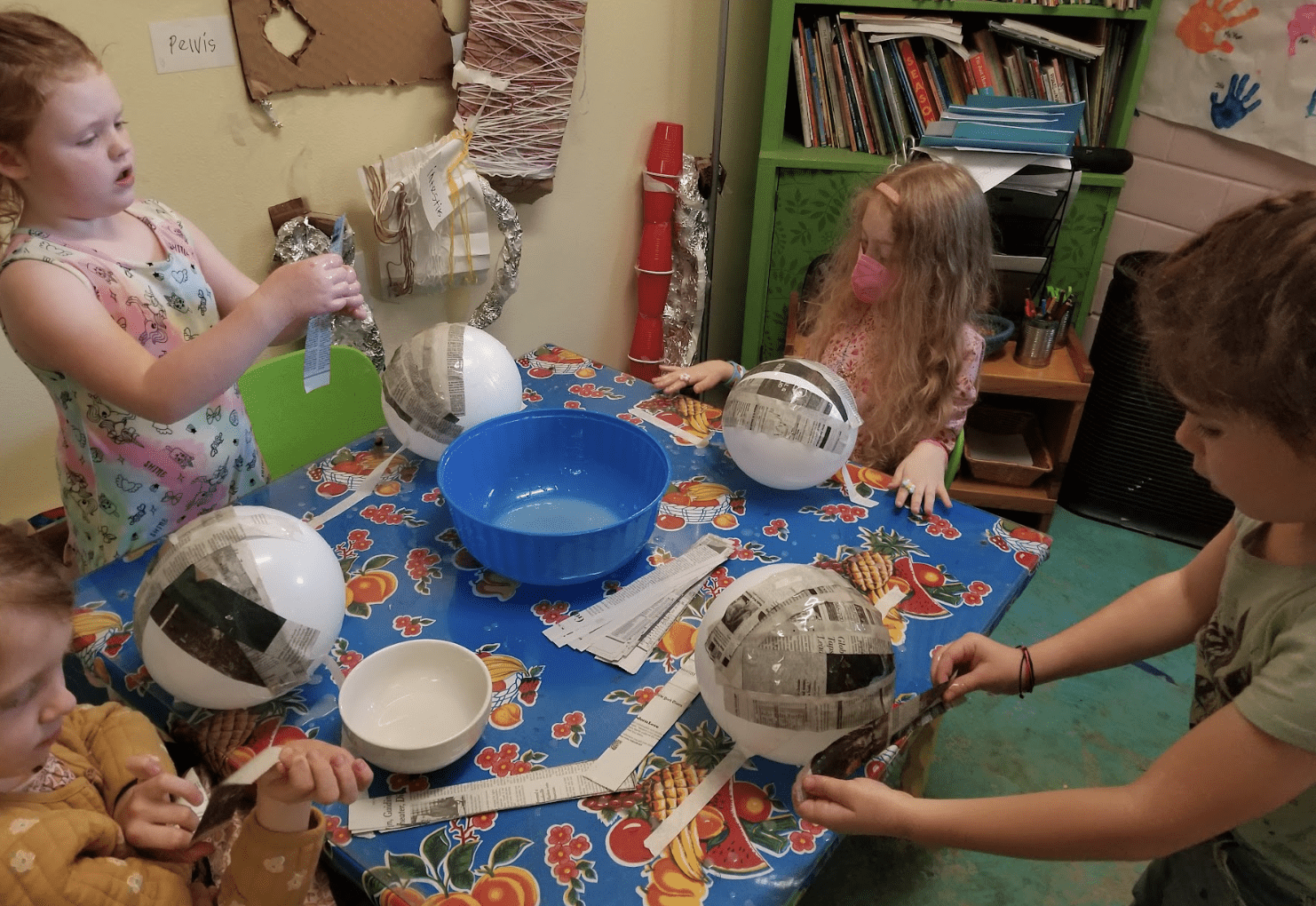
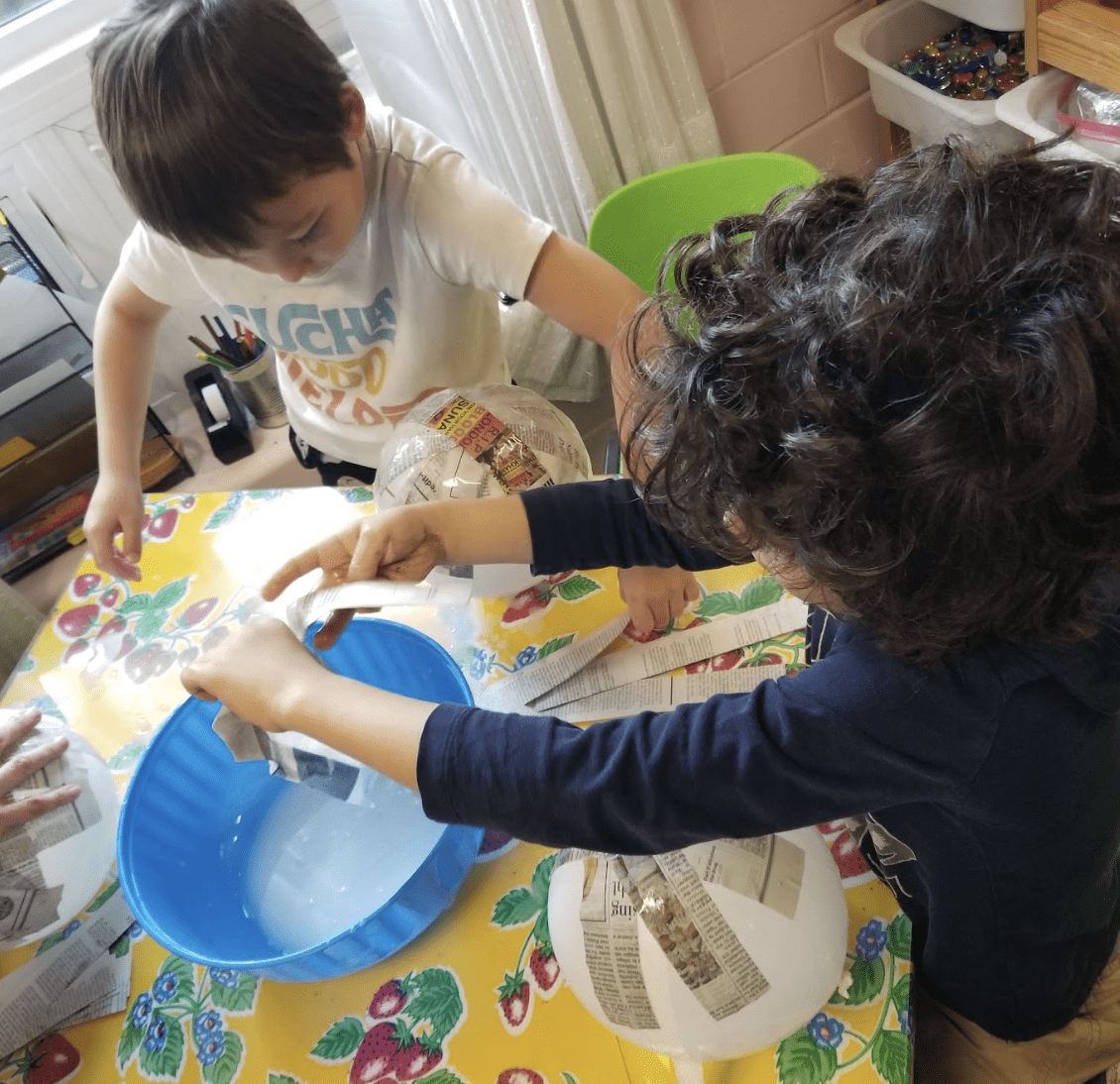
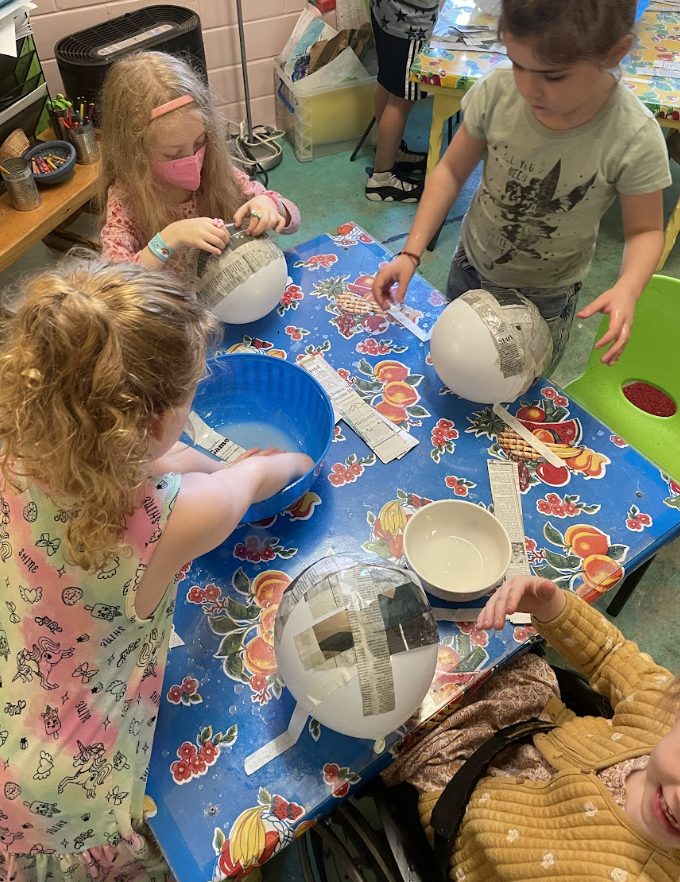
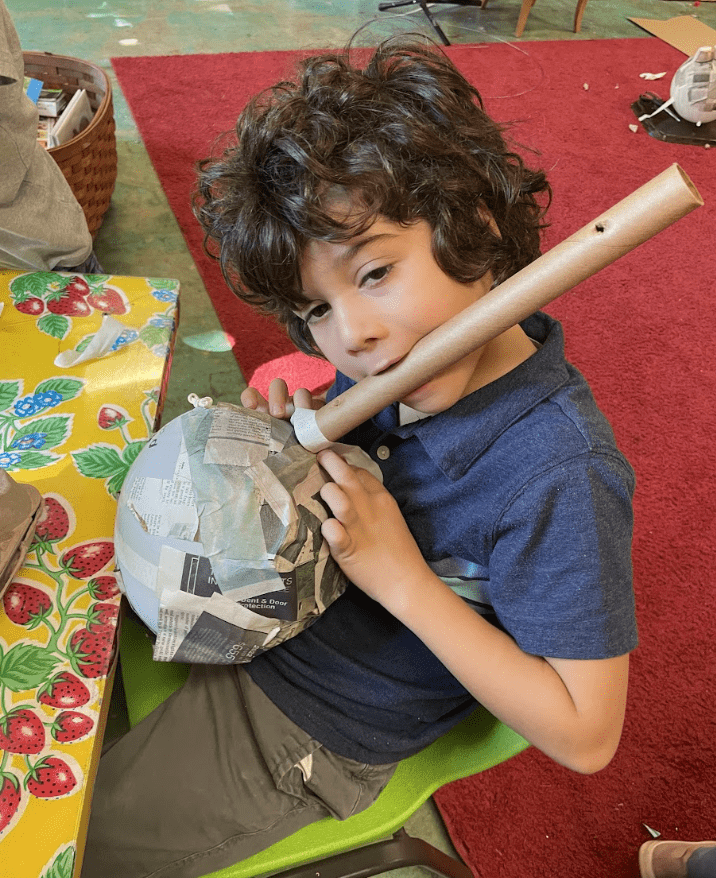
Sometimes your mouth can be a handy tool to keep things steady!
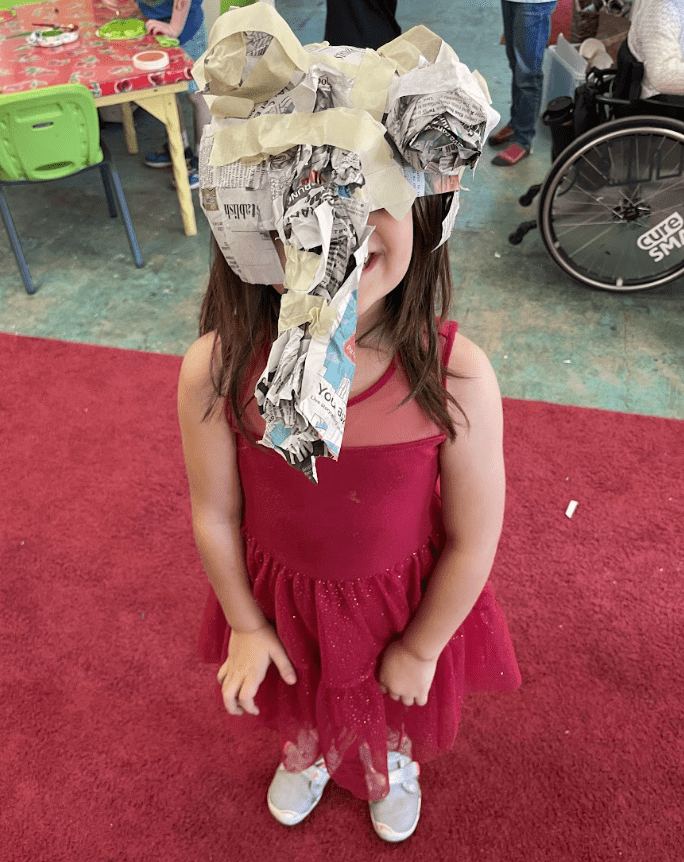
Three Sister’s Stew….
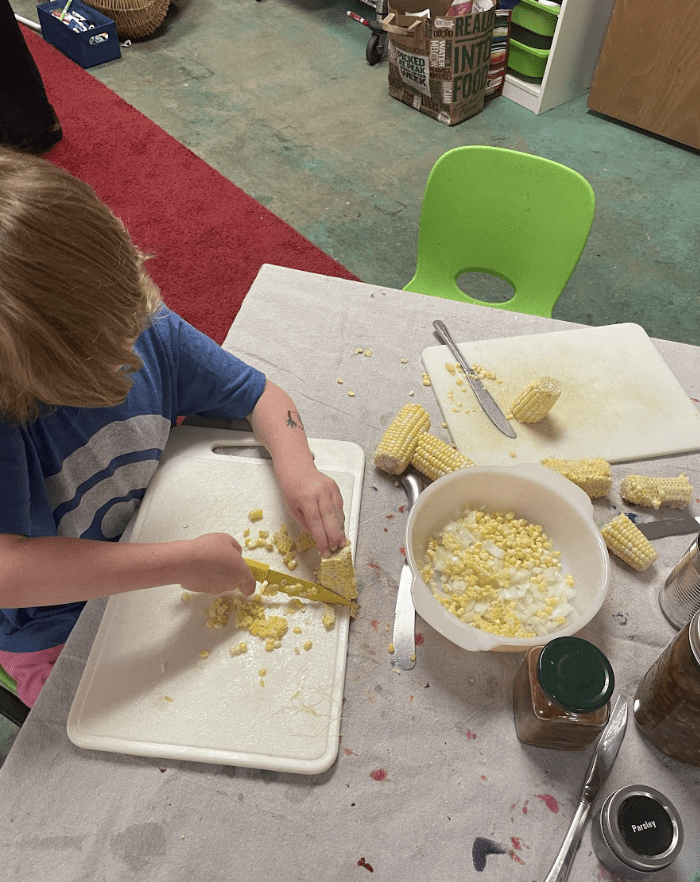
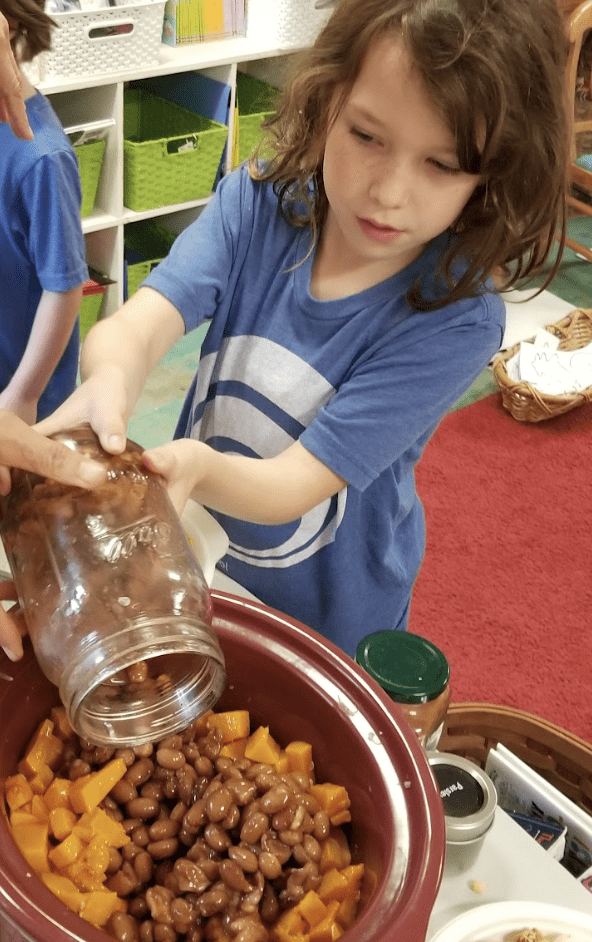
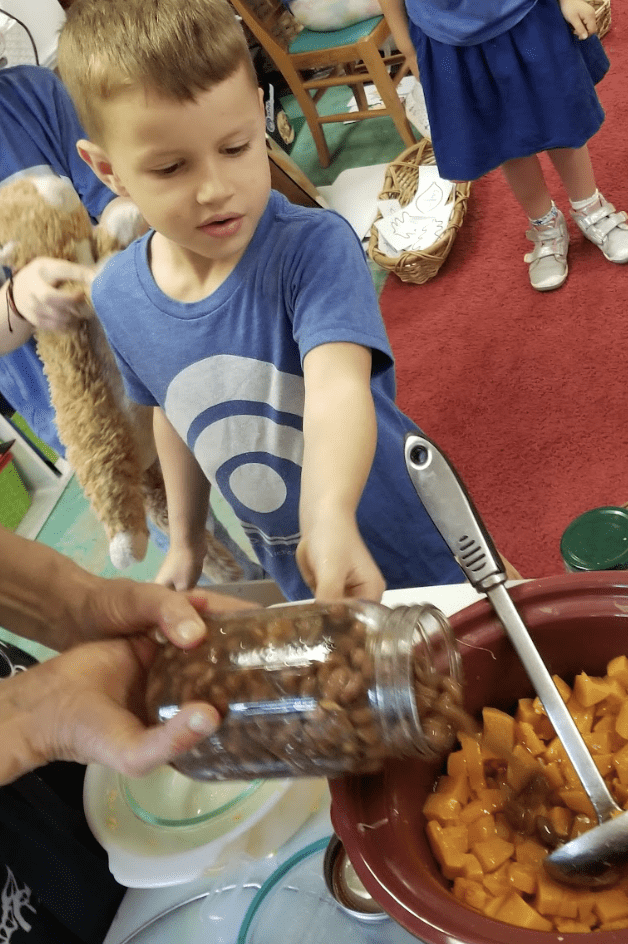
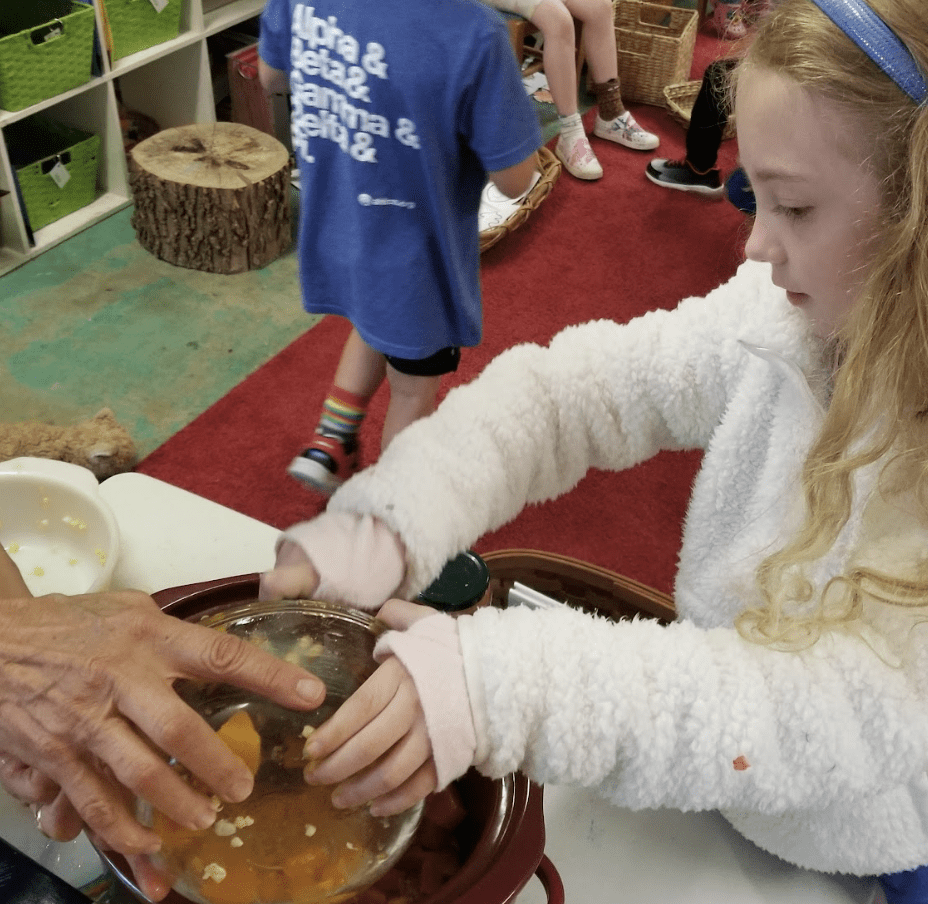
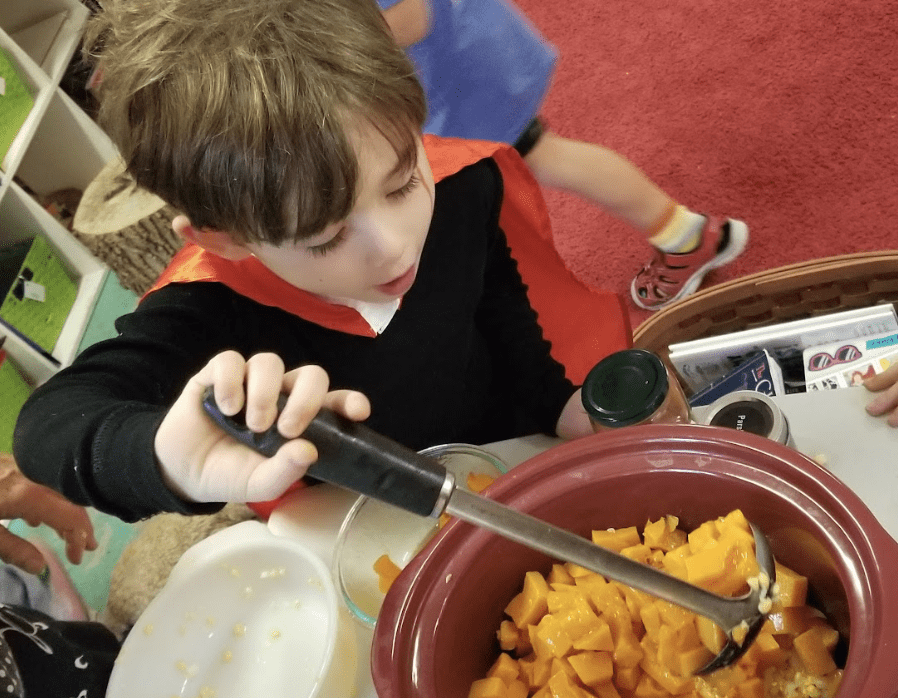
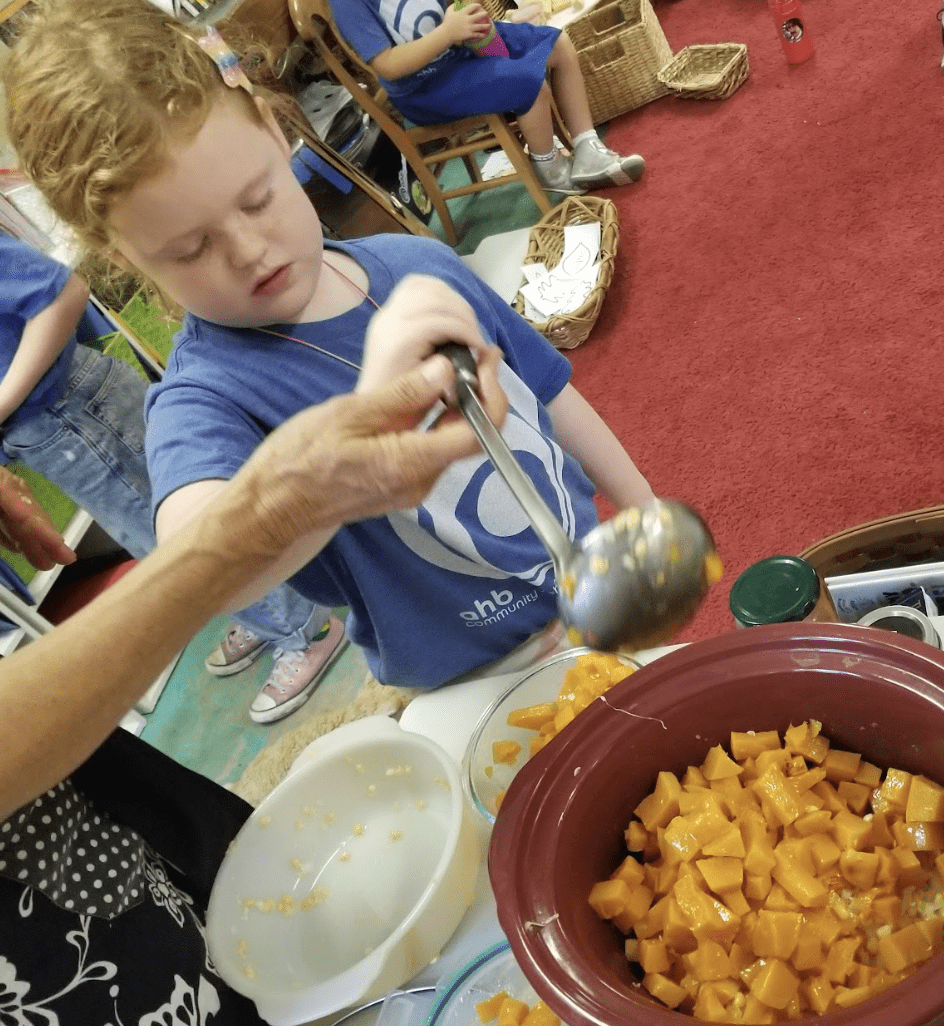
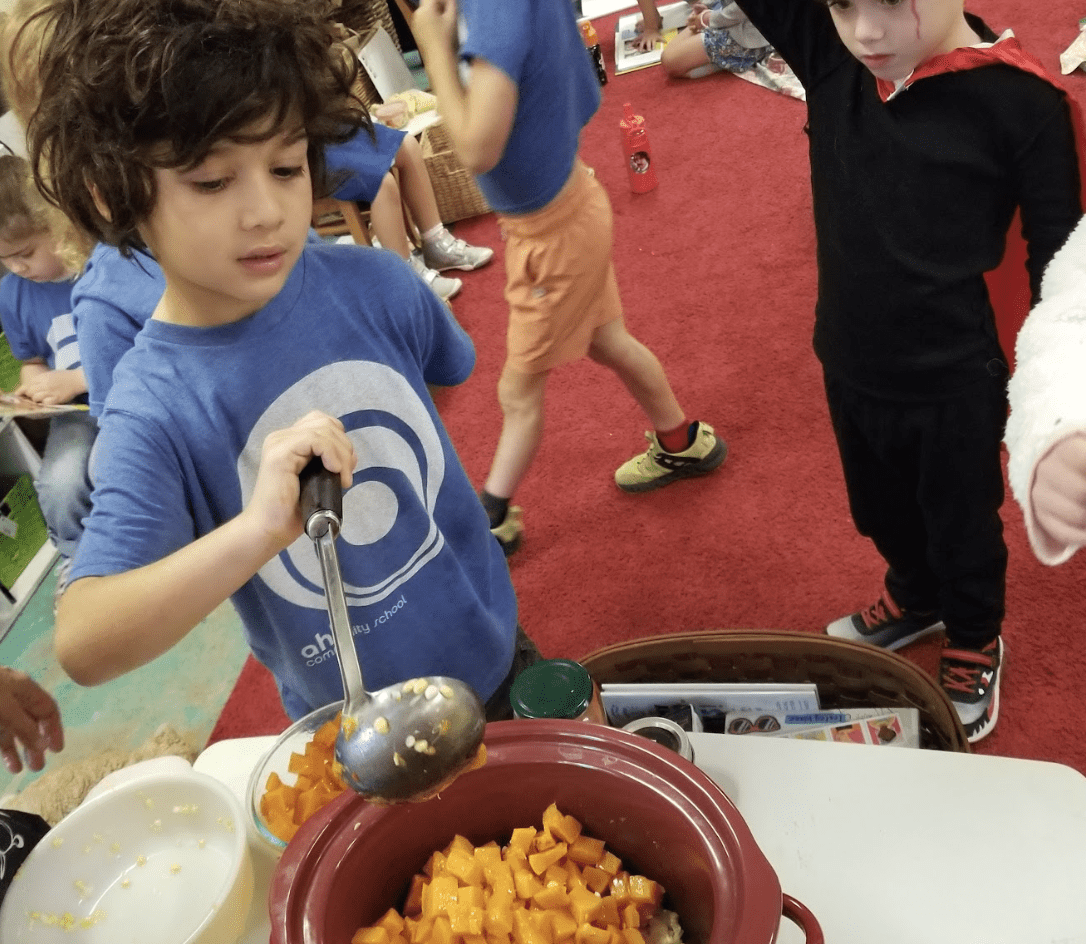
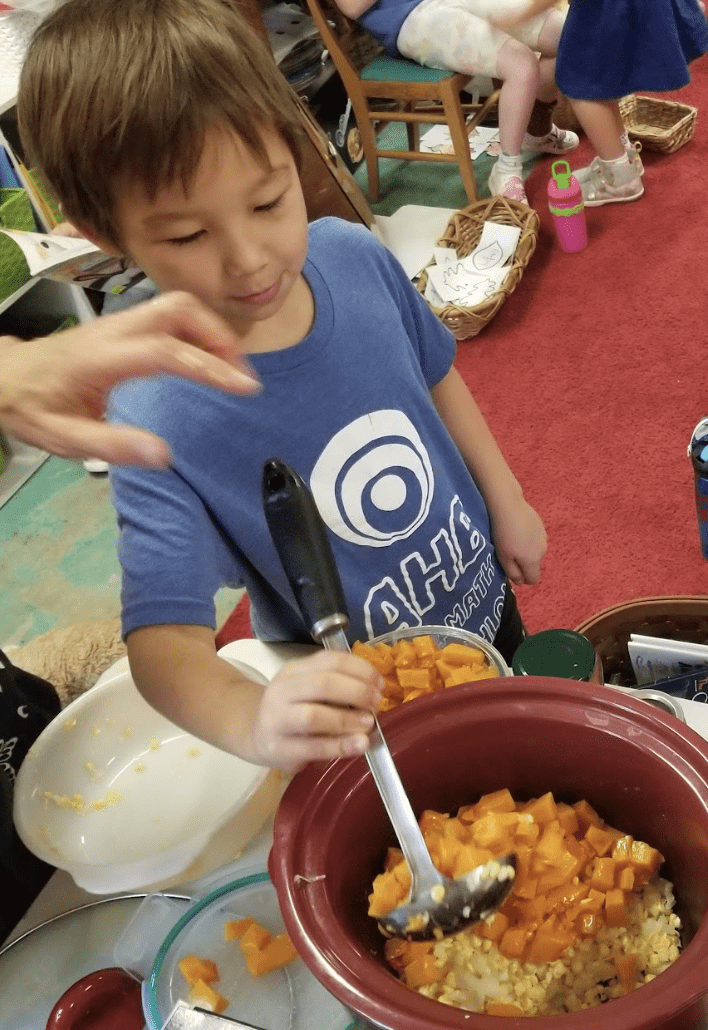
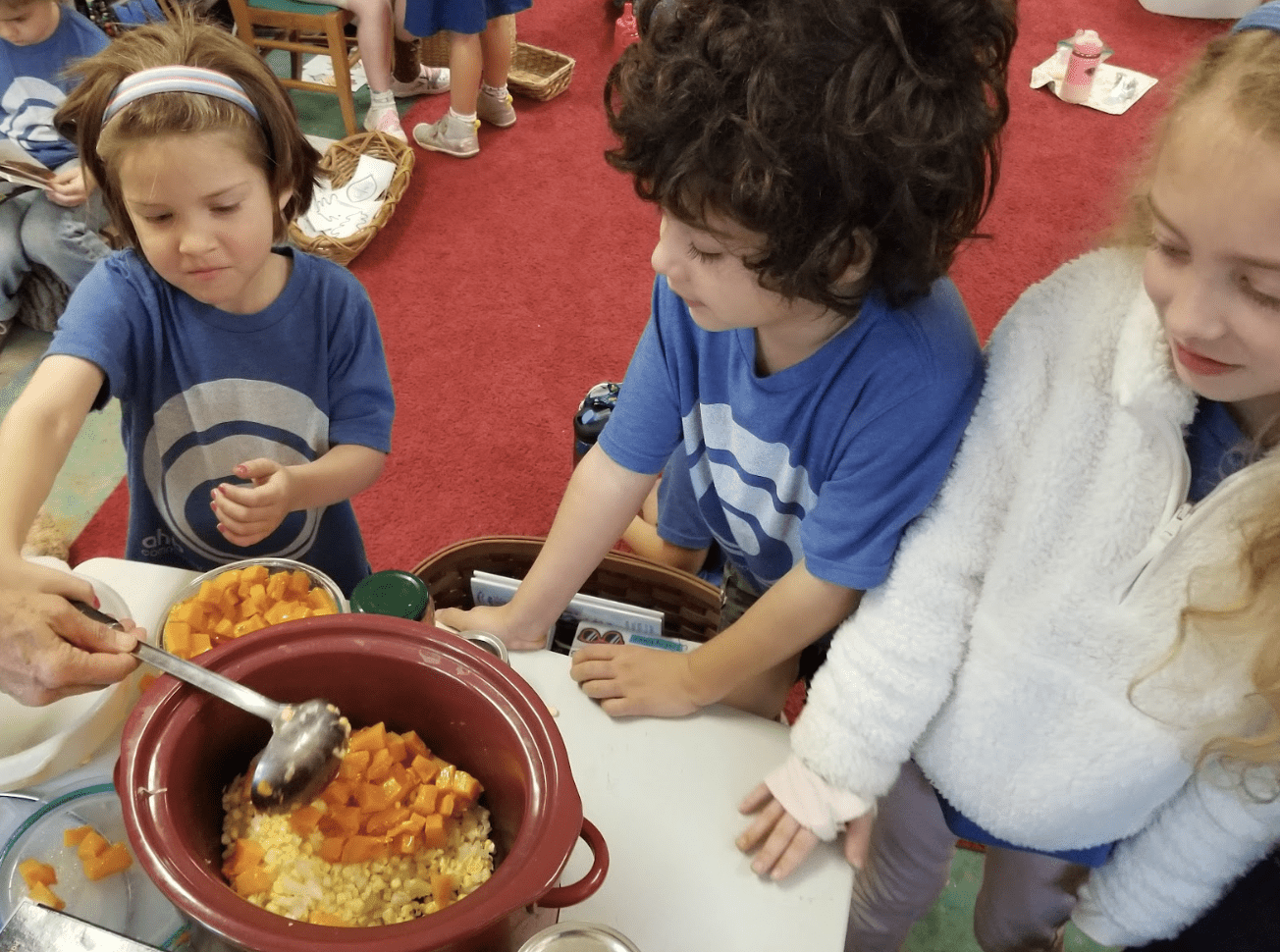
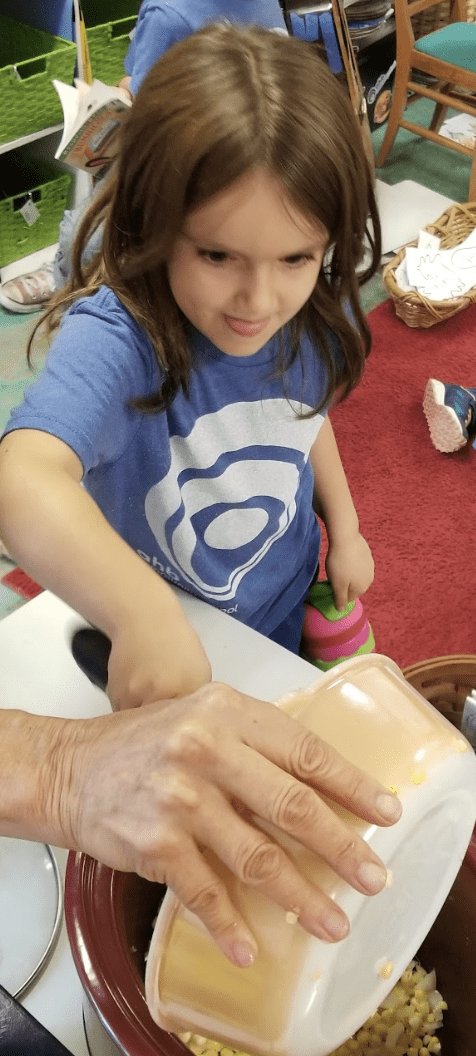
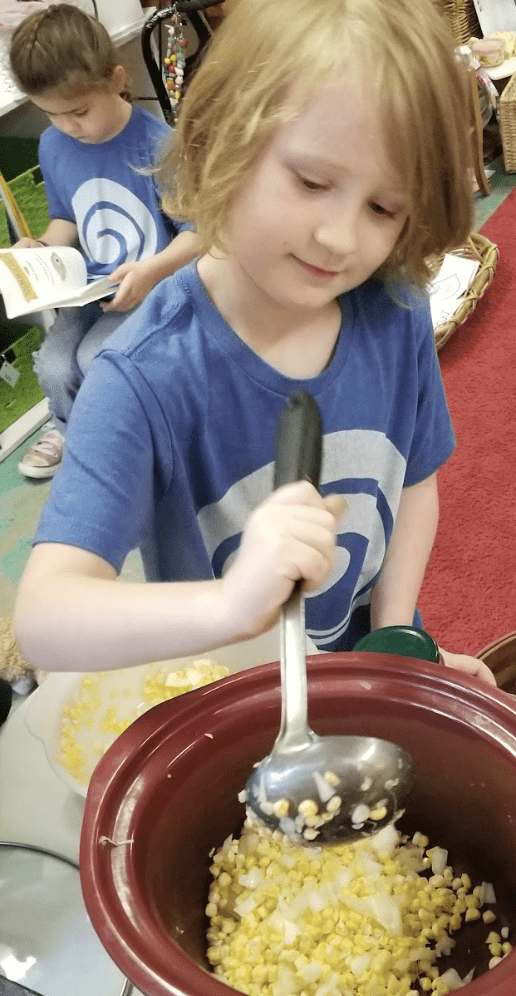
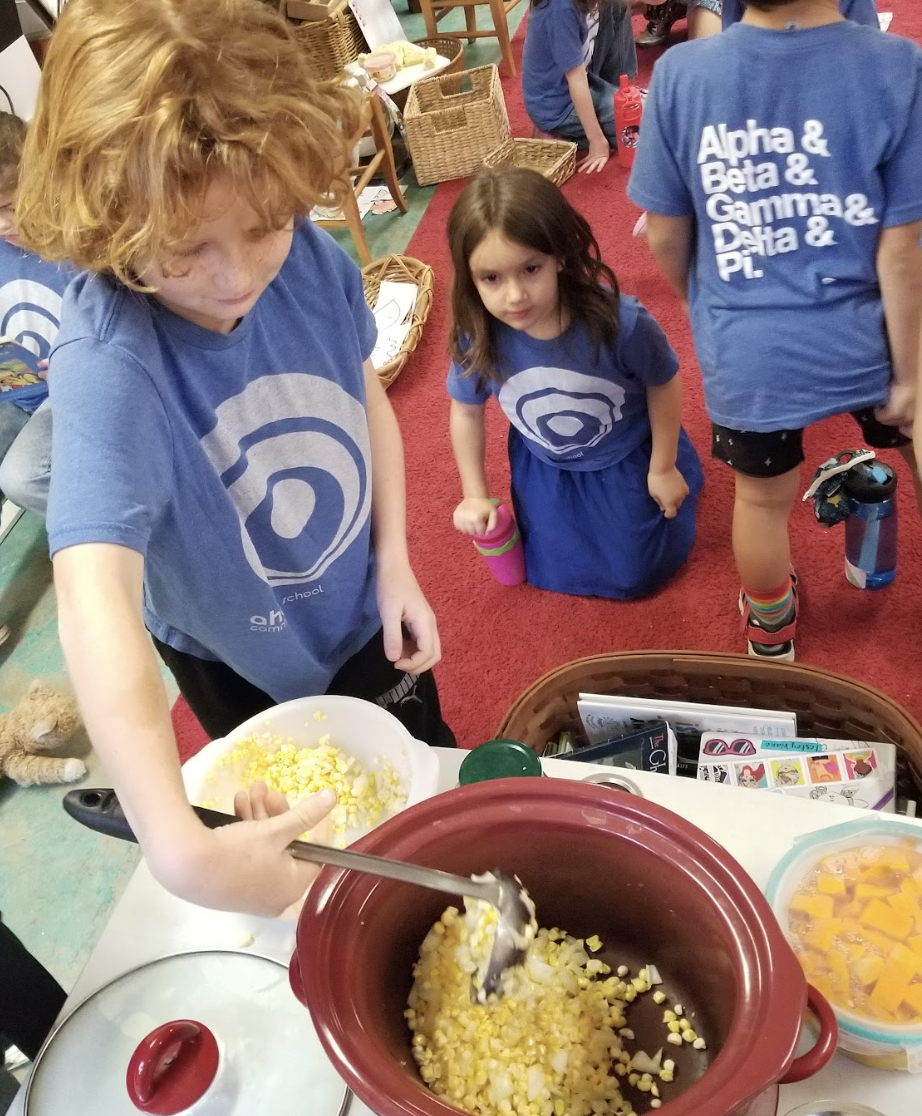
We weren’t able to catch on-camera all hands that contributed to our stew, but every Alpha contributed effort and sent in love and gratitude to energize our bodies and souls!
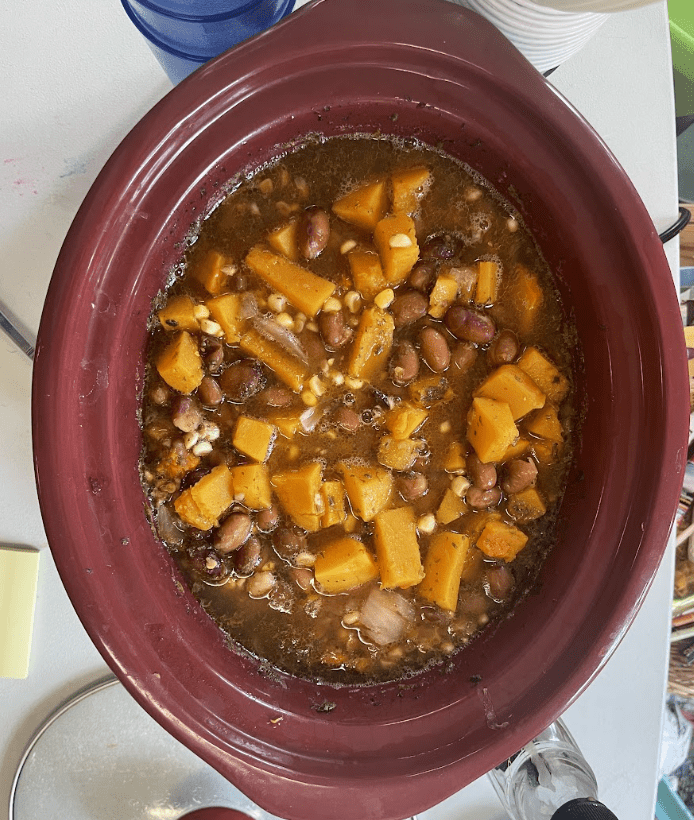
To make 3 Sister Stew…
- 4 ears of corn
- 1 cup of cranberry beans
- 1 butternut squash
- 1 onion
- dried parsely
- 2 Tbls maple syrup
- Salt
Cut and roast cubes of butternut squash.
Boil cranberry beans in water until soft.
(Ms. Eliza prepped these the day before)
Cut corn from the cob and dice a whole onion.
Place all ingredients in a crock pot.
Add a teaspoon or 2 of parsley.
Add maple syrup and salt to taste.
Cover with water and set on high.
Go to Math, Language Arts, and have a picnic at Shipe Park.
Unplug the crock to let cool a bit. Paint your Turtle Rattles.
Serve up and have seconds (or if you are Pao, have sevenths)!
This week in Math…
Ms. Kim’s group…
We played around with lots of addends, picking up with where we left off last week. Alphas began to notice that some math facts are related: “…you can make the sum of 6 with 4+2 AND 2+4!” We call that “commutative property,” and that is a very handy strategy when we are learning math facts. We me made towers of 15 snap cubes, then grouped our cubes by color and wrote a LONG addition problem for our snap cube combo. Alphas had fun finding their way out of a maze by searching for all the equations that add up to the sum of 5. Then we played a mental math game where we had to add and subtract by 1 or 2 in our minds to figure out how many birds are left on the telephone wire. Those birds sure come and go a lot!
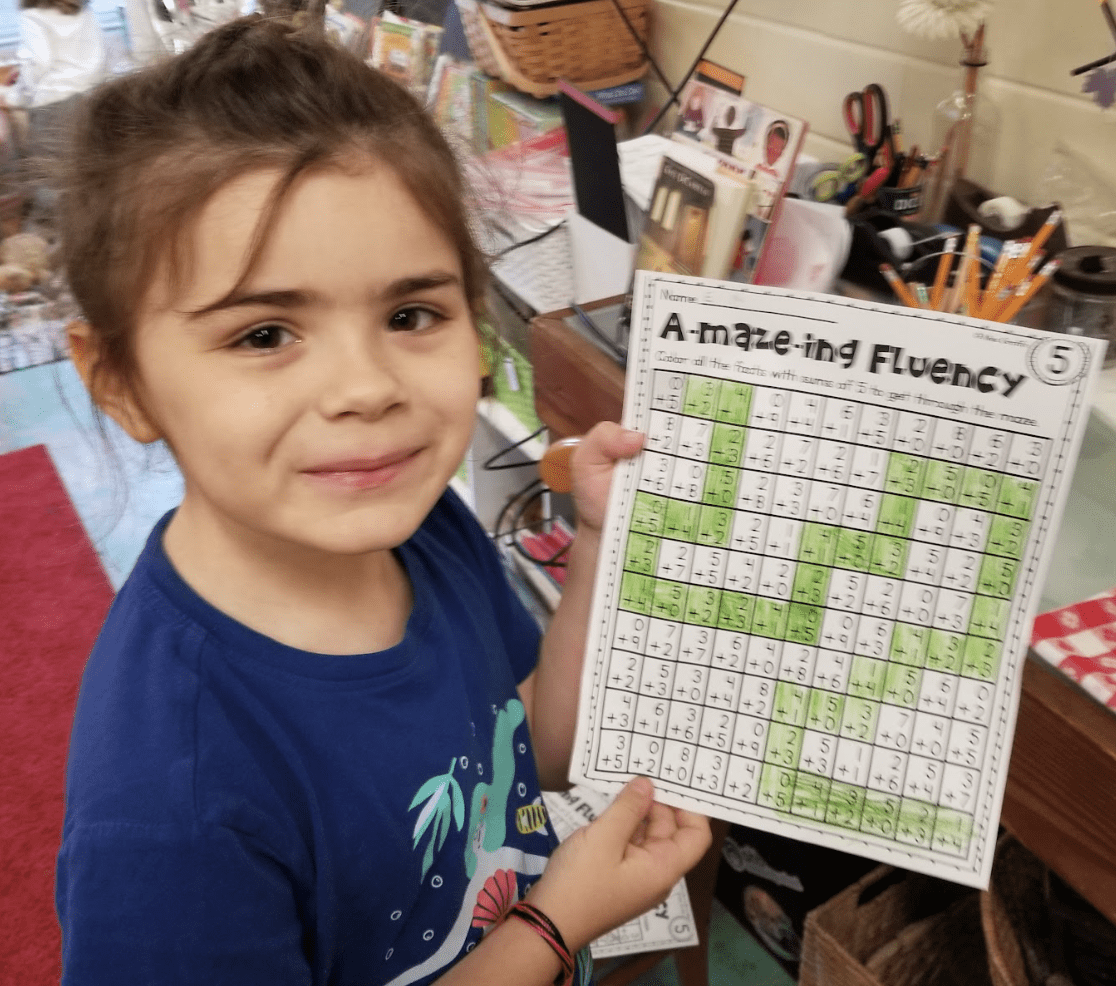
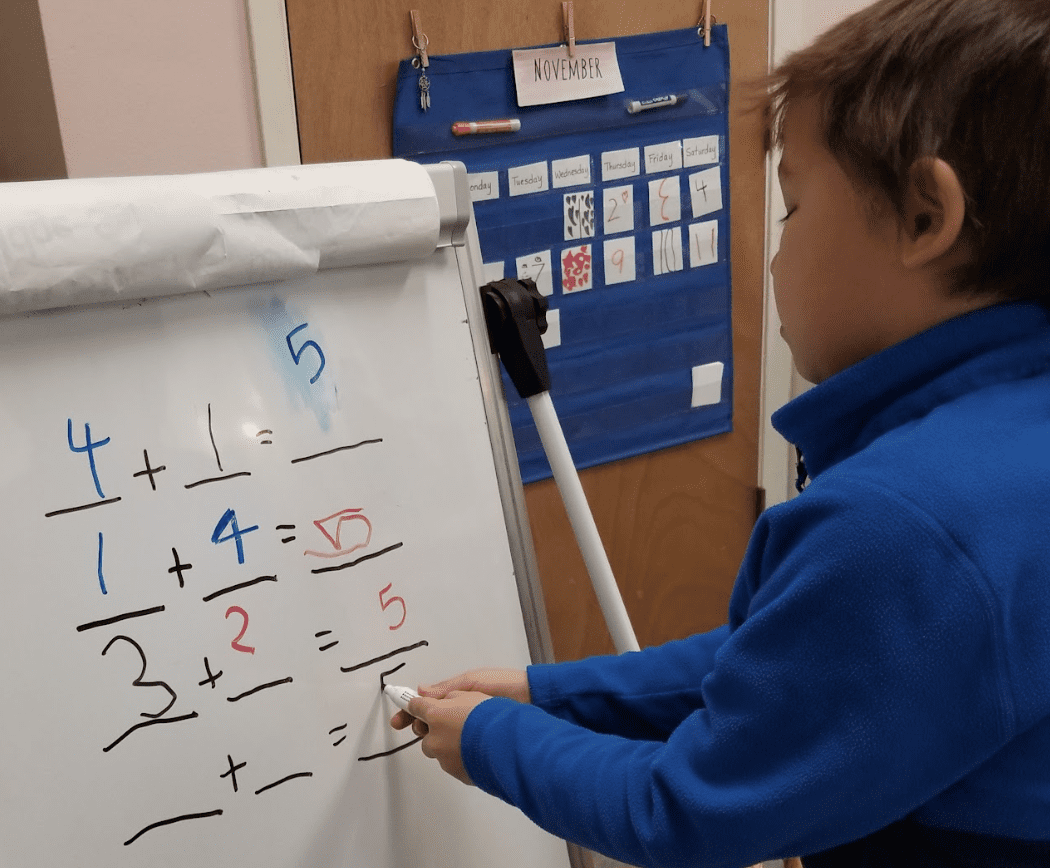
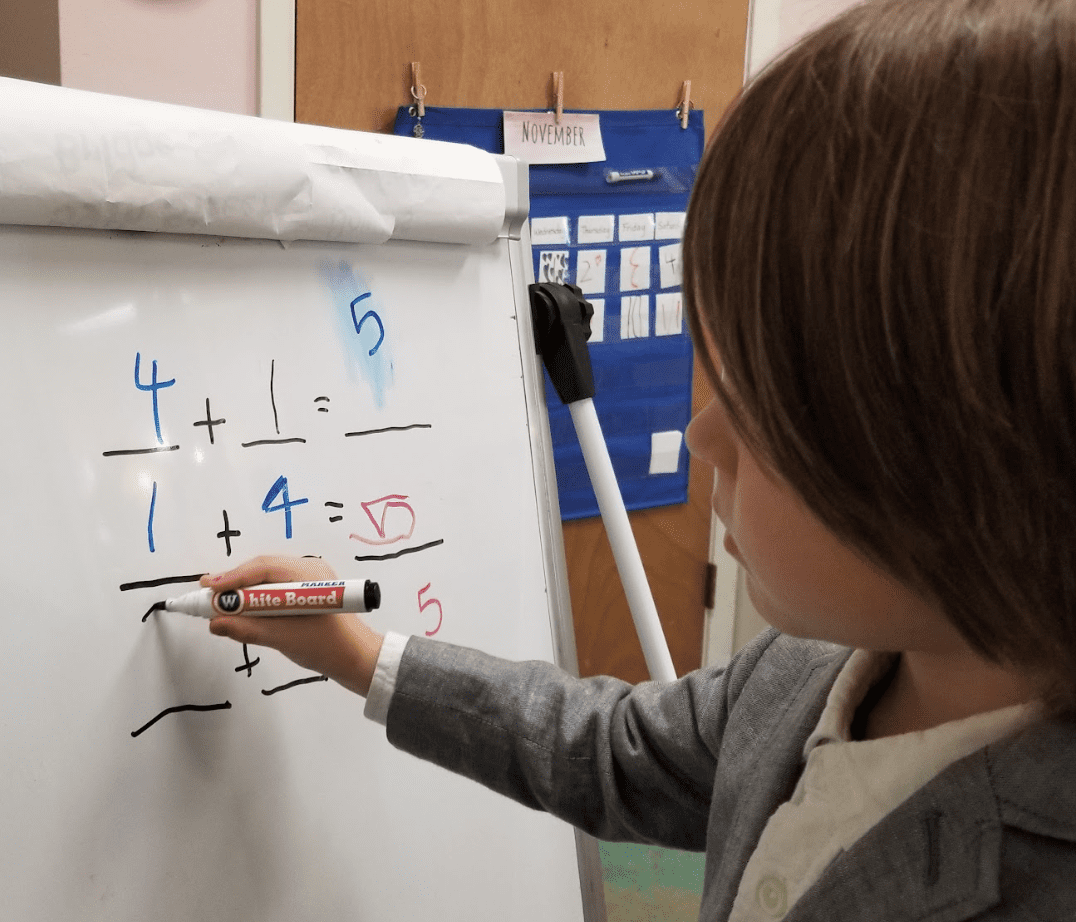
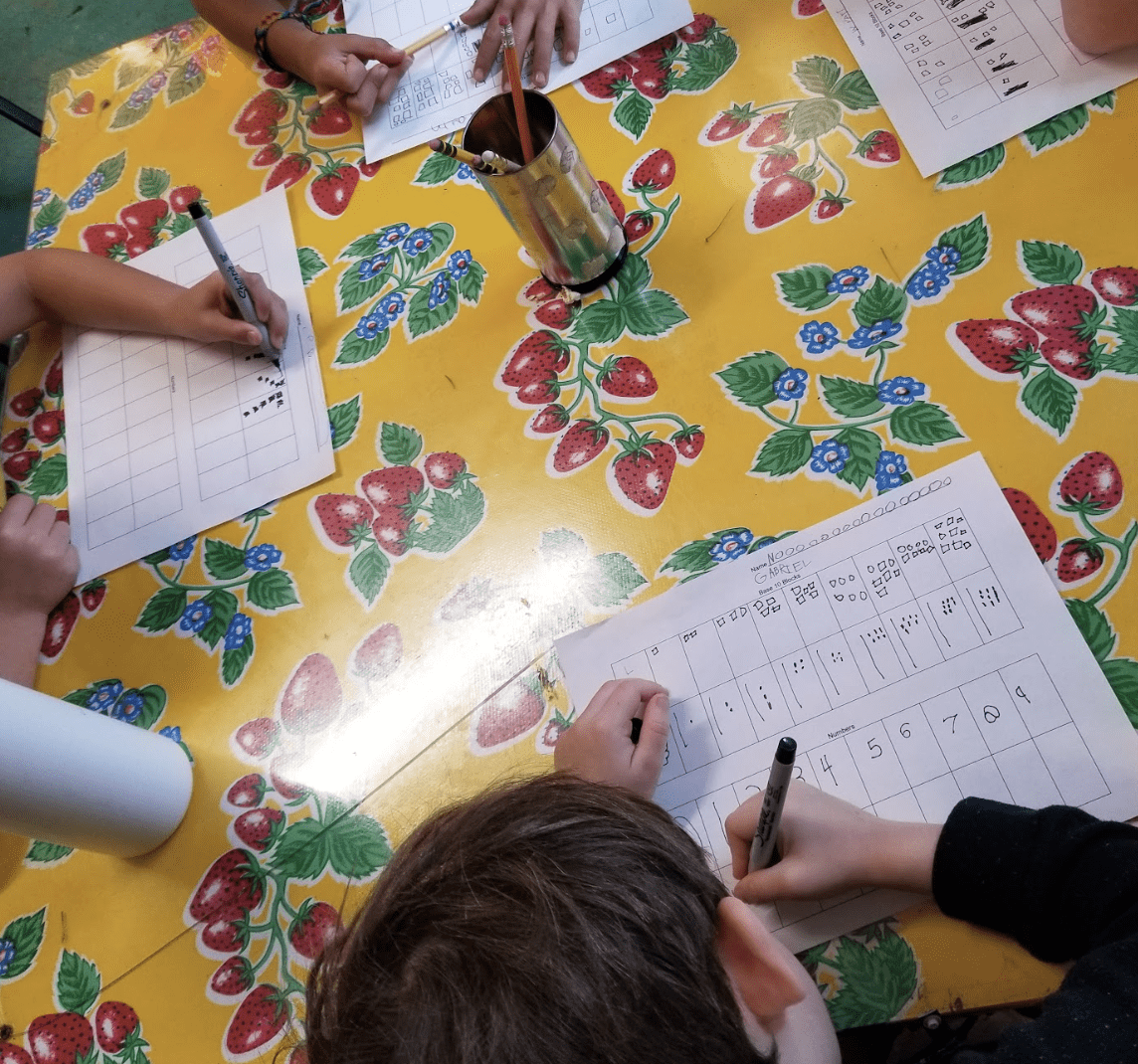
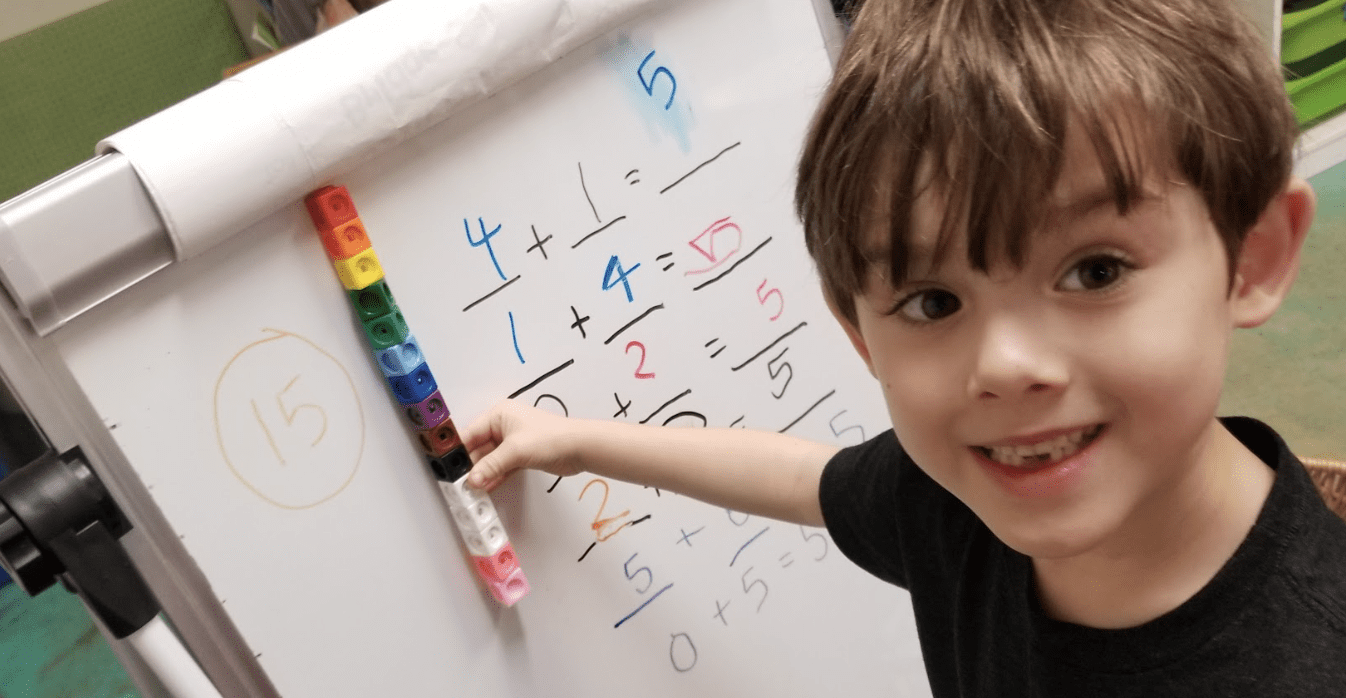
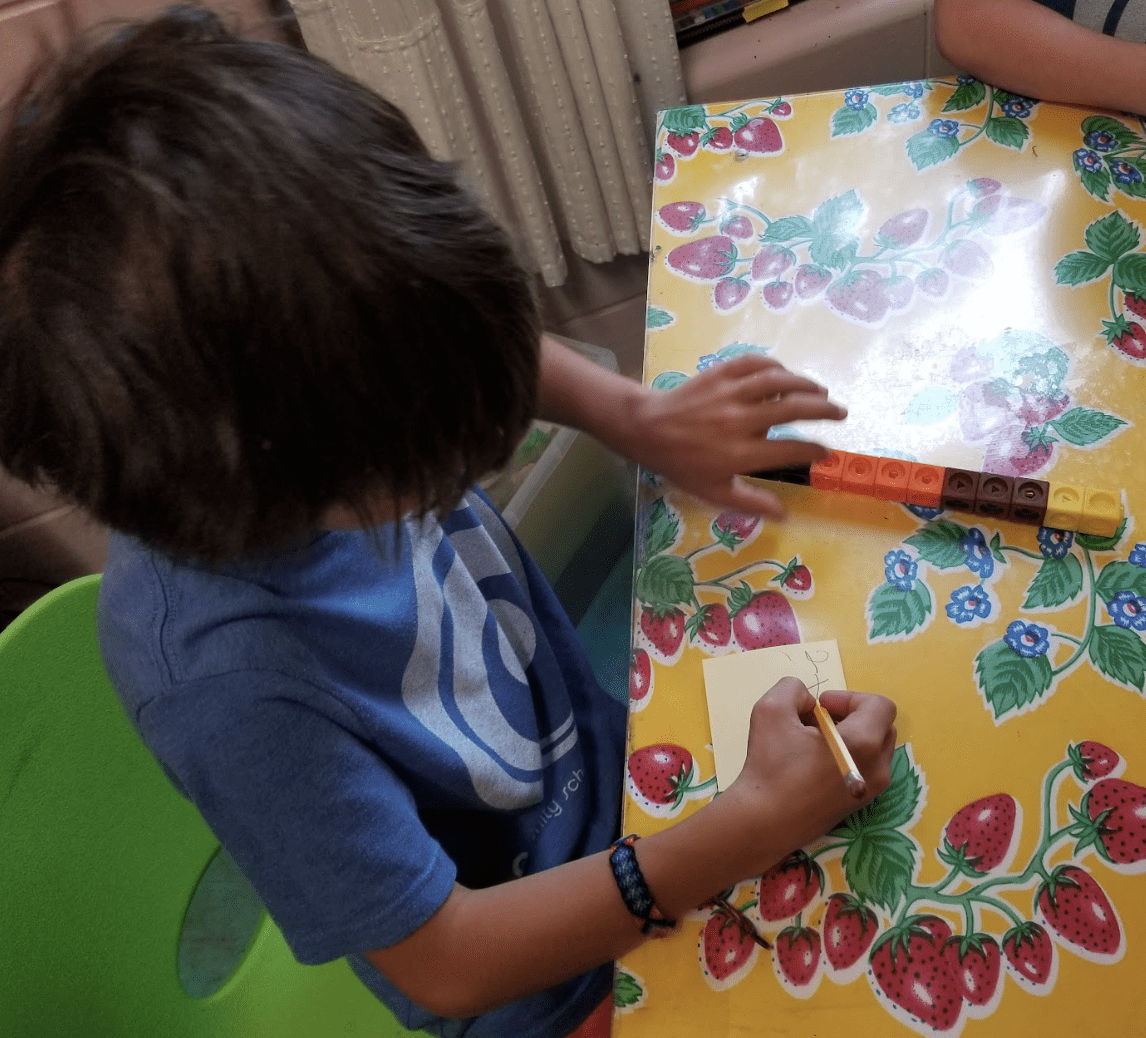
Ms. Eliza’s group…
Skills we’ve been practicing this week have been 100 chart and place value knowledge, Determining if a word problem is asking us to add or subtract, adding with 3 numbers, and adding with 9.
Practicing adding with 3 numbers
and comparing them in the game of Get to 10
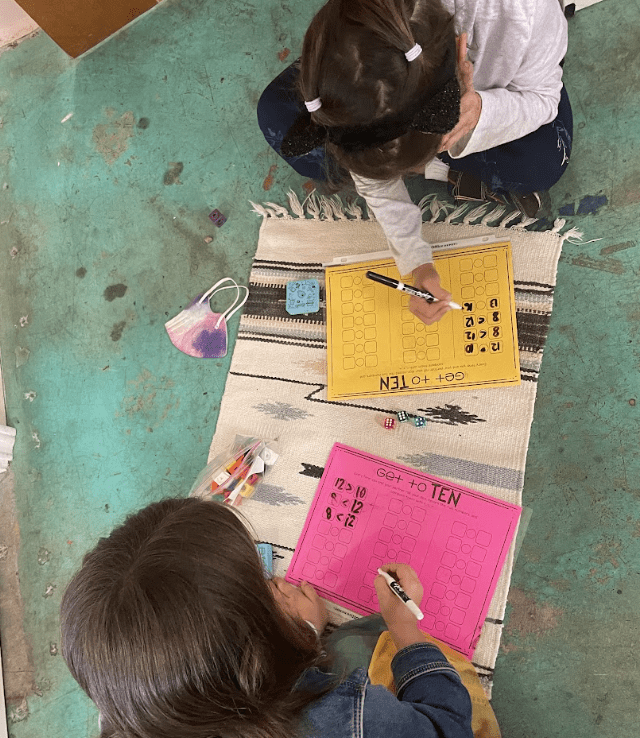
Playing Doubles and Doubles Bump
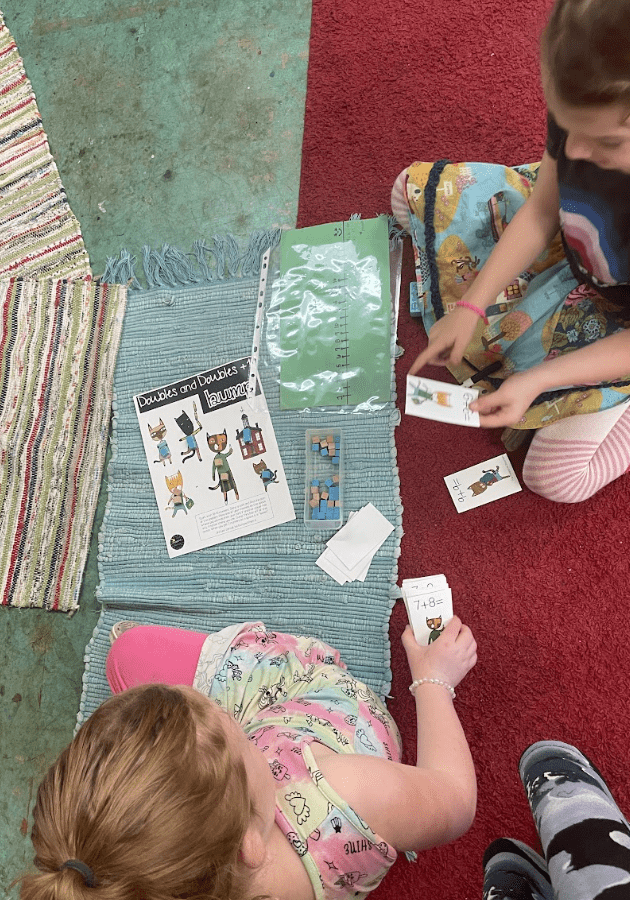
This week in Language Arts…
Ms. Eliza’s group…
Our letters this week were K and E. As we learn our letters, we’re learning to draw animals that start with that letter too – this week it was koala bears. We practiced our sight words with a roll, read and write game and we read two books this week about Show and Tell. Yoko’s Show and Tell by Rosemary Wells and Show and Tell Day by Anne Rockwell. We made many personal connections with the stories and were a thoughtful audience when we had our own Show and Tell Day.
K is for Koala
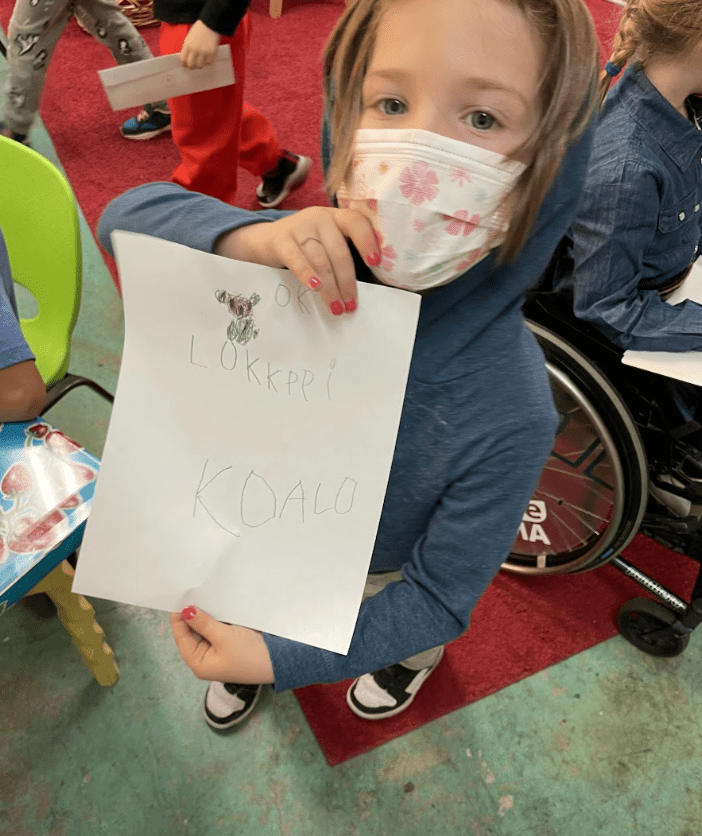
We added short i to our practice of CVC words.
We first read the words, then we match them
with a picture.
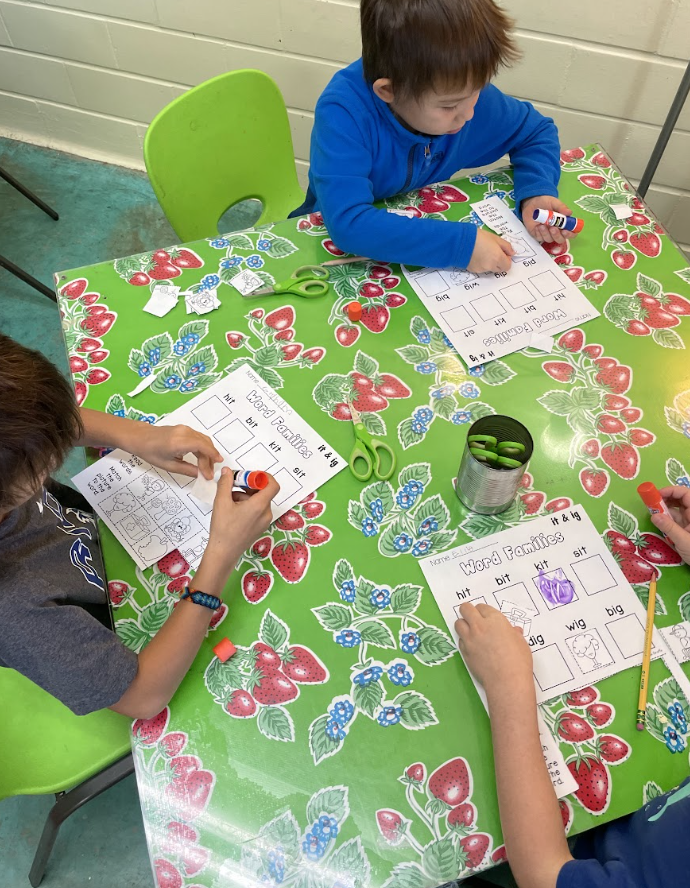
Three of our show and tells were dinosaur treasures!
The World of Dinosaurs…
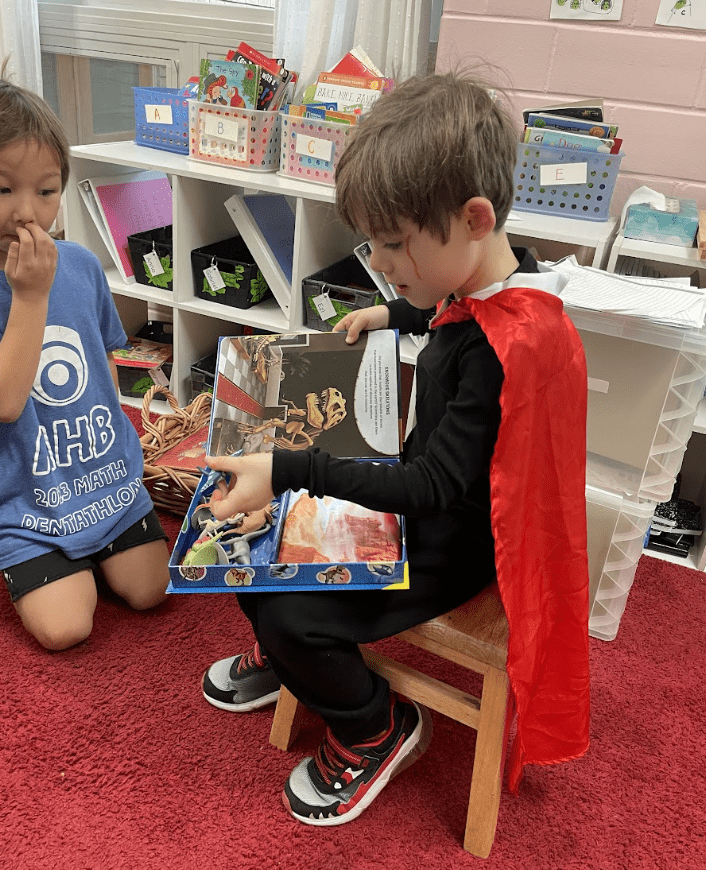
50 million year old dinosaur poop…
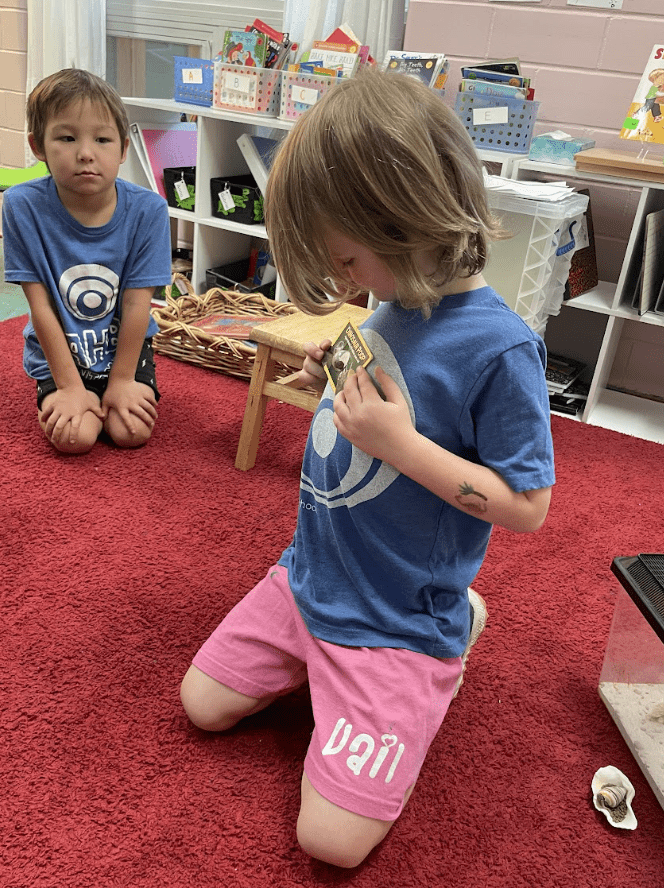
And a mastodon tooth from the Tooth Fairy!
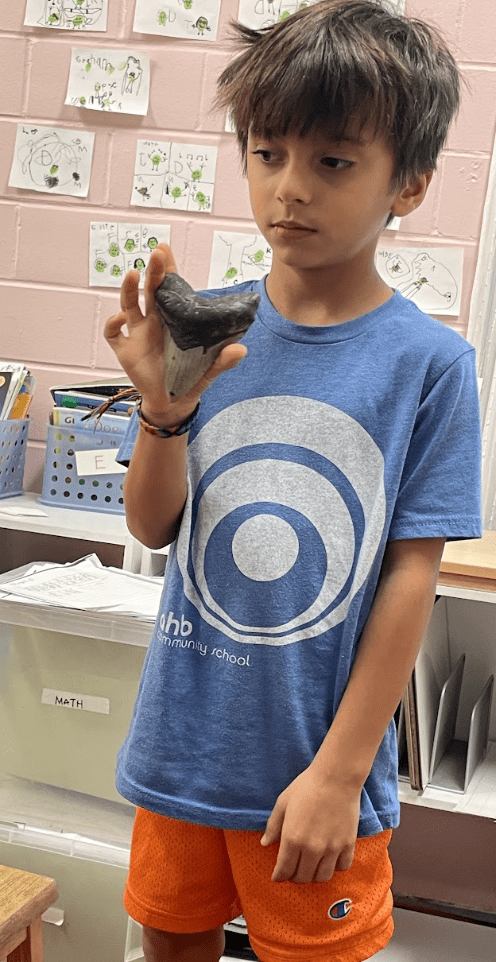
A live hermit crab named Rainbow Bubblegum…
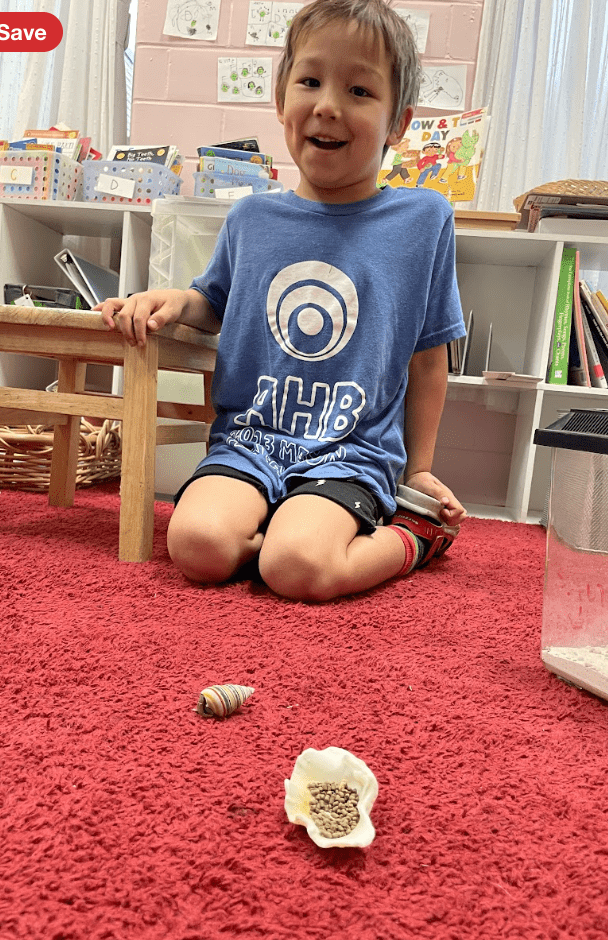
An amazing hat from Ireland with moveable ears…
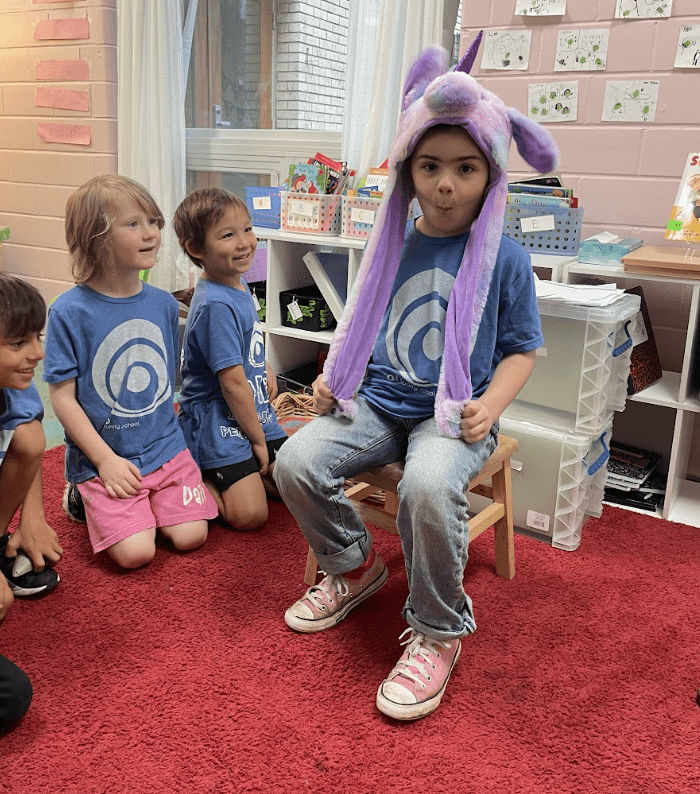
A balancing eagle…
a special sticker from
A visit to a Fire Station…
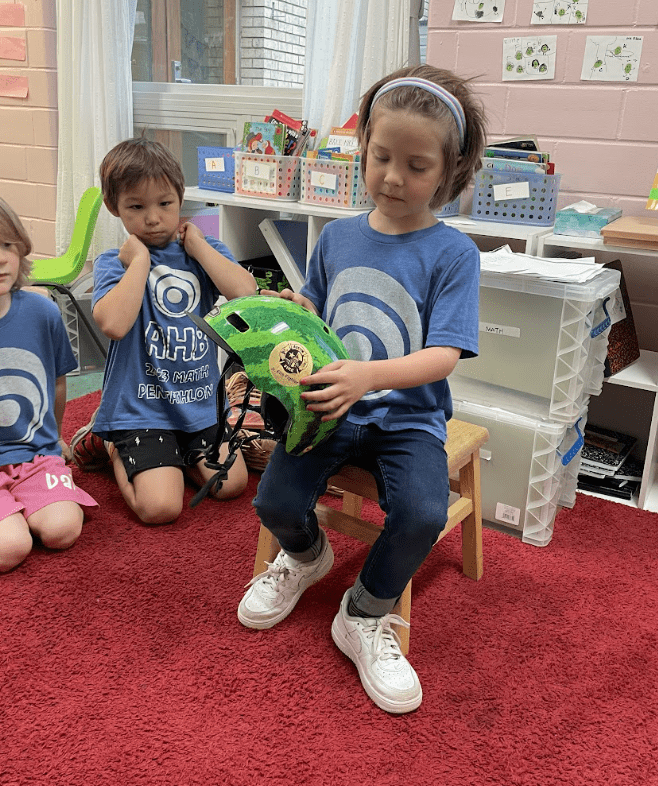
And a forever wish.
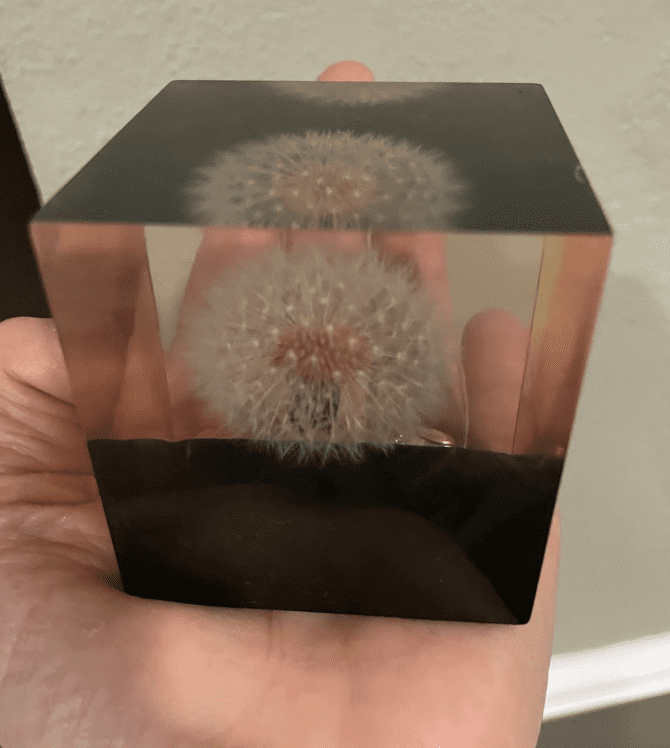
We then wrote about our Show and Tells
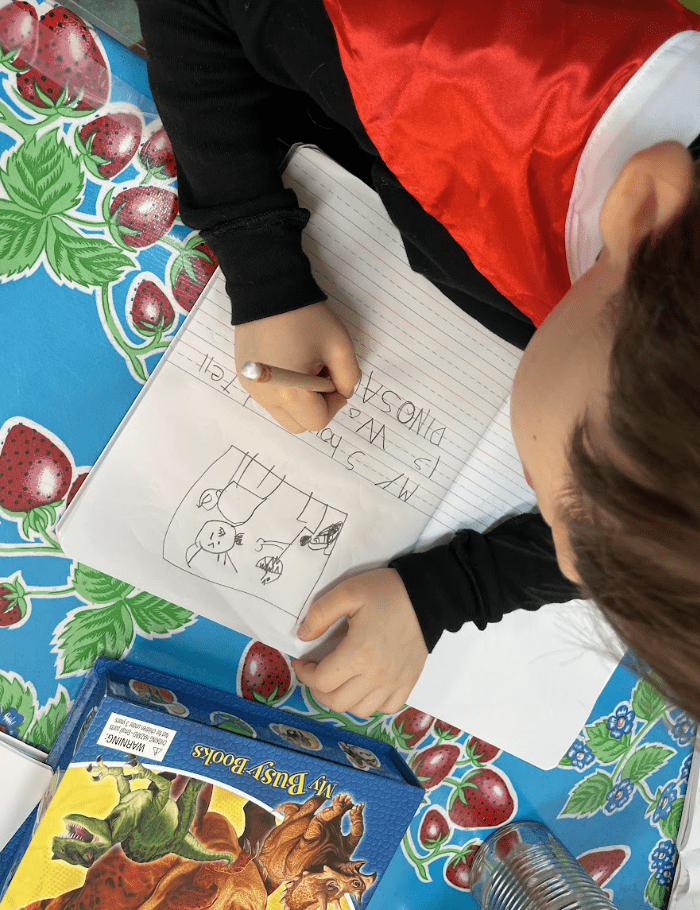
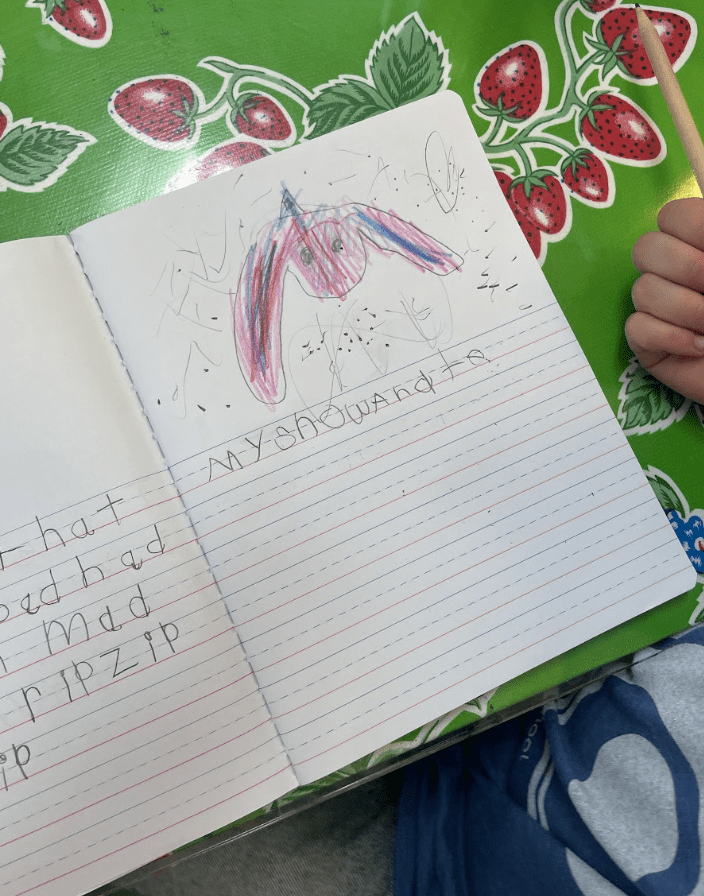
Reading together is a part of
everyday!
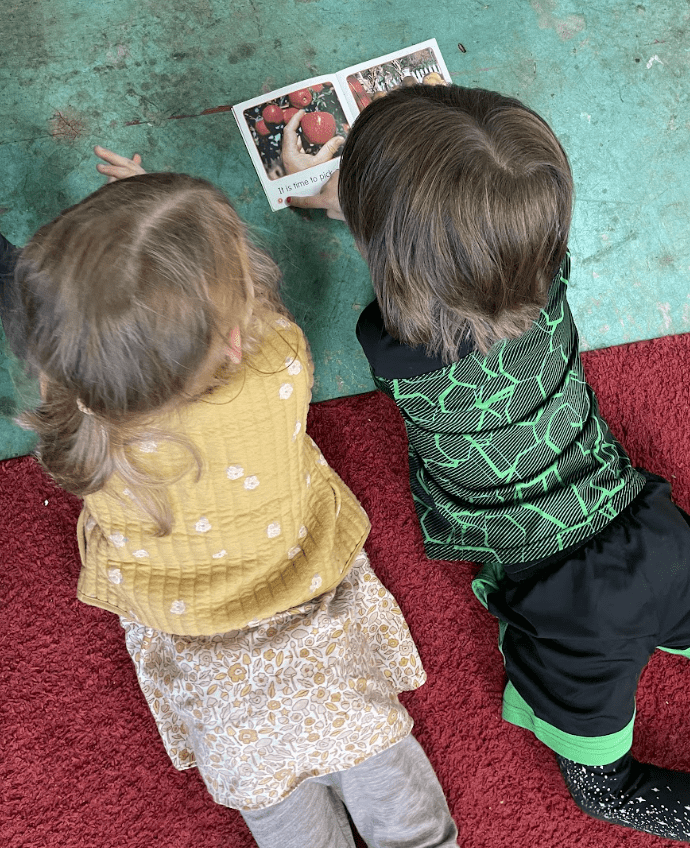
Ms. Kim’s group…
This week we picked up where we left off last week working with our word work skills and writing challenges. We practiced how to give people written information, using the subject of Autumn. We brainstormed how we felt about Fall and things we did in Fall. Everybody relates to Fall in their own unique way! Then we tried our hand at writing an opening sentence that would give our readers a general idea of what we have to sharel. We learned that “Fall is great for traveling,” “Fall is the best time for running,” and “Fall has the best holidays.”

Alphas copying their drafts into their journals…
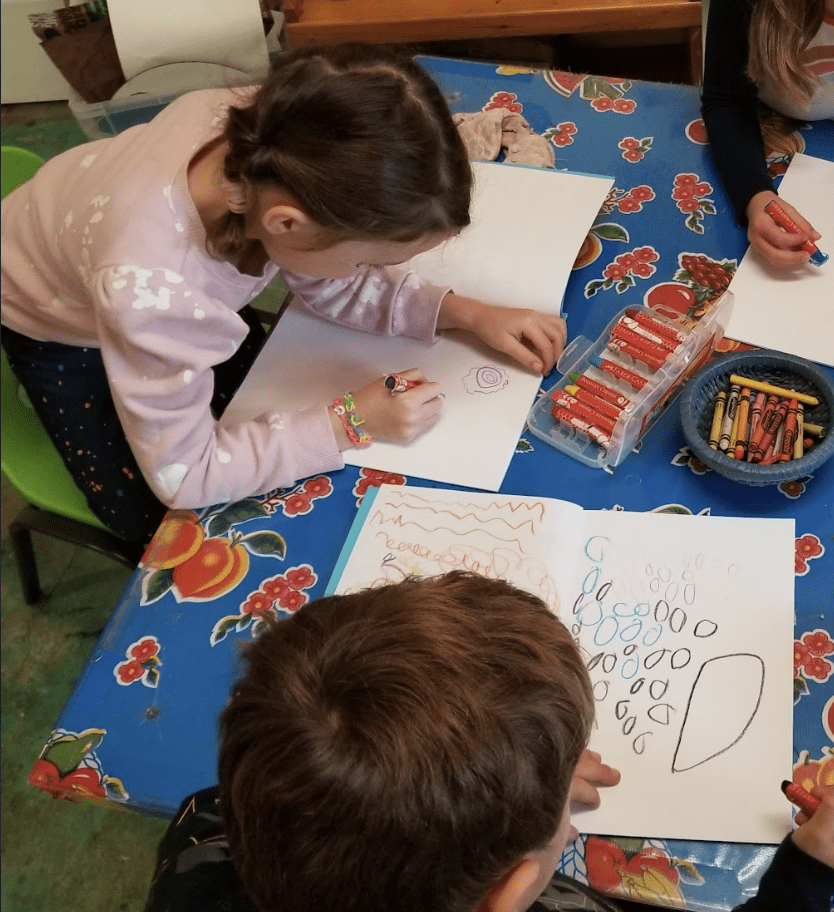
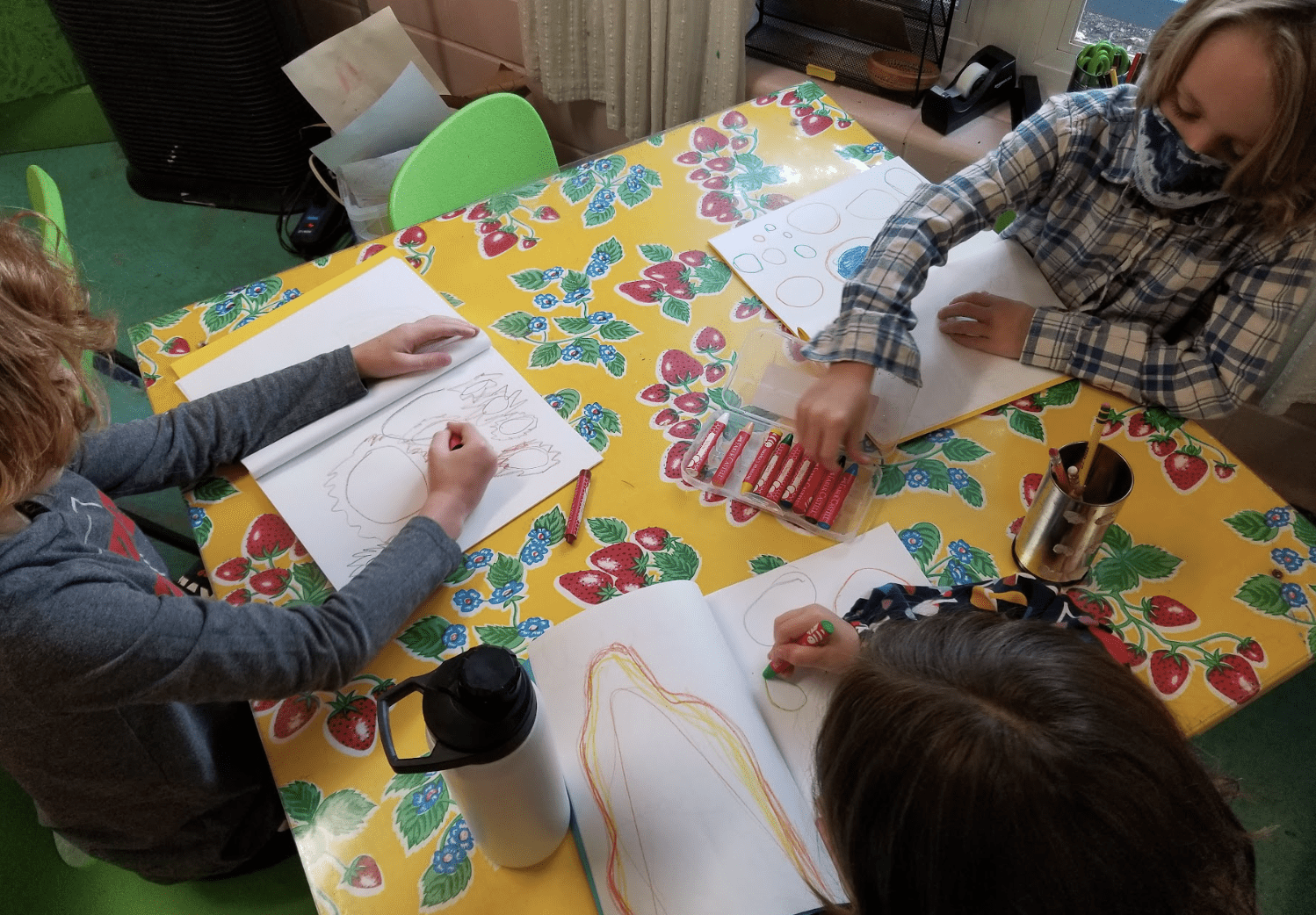
Part of our handwriting program this year includes “creative form drawing,” which comes from Waldorf School pedagogy.
Morning Activities…
Alphas came together to solve a playground problem to make games fair and inclusive.
Contributing to our community by taking pride in our jobs…
Scrubbing the starch and glue from our paper mache projects…
“Our table sparkles!”
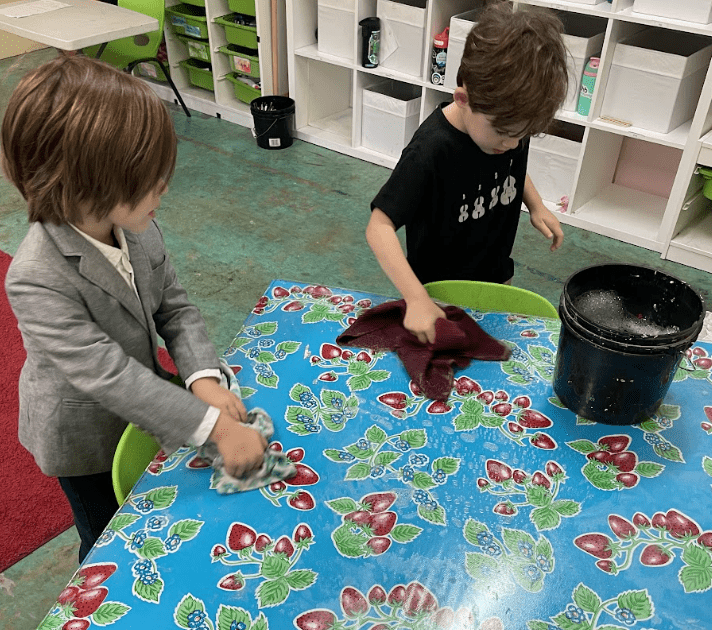
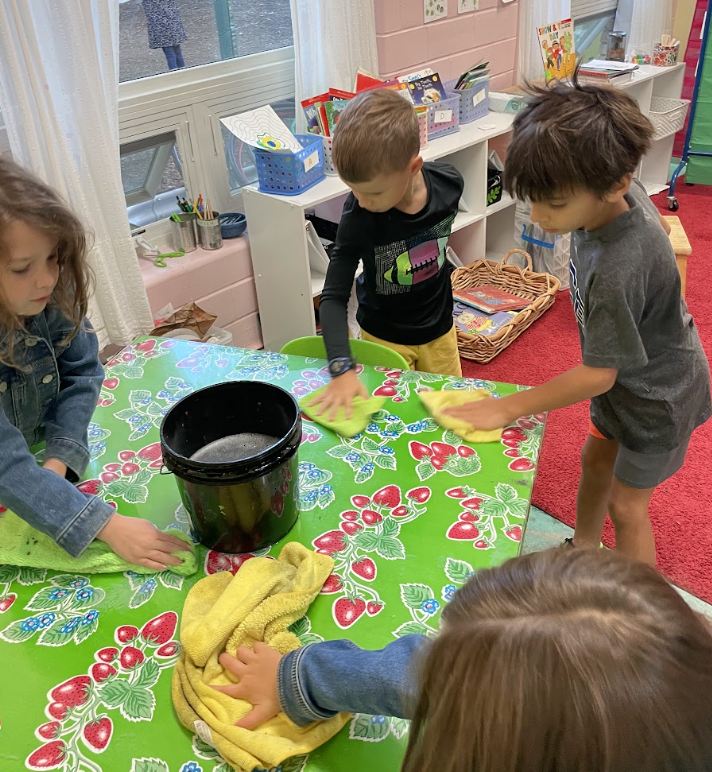
Our sweeper helping take care of spilled snacks
